Online learning session for LGBTI activists: Effective messaging in times of crisis
During the session, we explored how to frame messages that build a connection using real examples of organisations that have responded thoughtfully and strategically to crises.
We also discussed how to adapt communications to meet the evolving needs of communities, while at the same time staying aligned with a long-term vision.
Check this session out and walk away with ready-to-use tools, adaptable messaging frameworks, and the know-how to handle anything from backlash to unexpected media attention.
The session was prepared by ILGA-Europe communications consultants AJ Venturini (they/them) and Evá Papadakis (he/they).
You might like to check other communications resources from ILGA-Europe:
- Checklist for Your Crisis Communication: https://hub.ilga-europe.org/communications/checklist-for-your-crisis-communication/
- Skills Boost for LGBTI Activists: Media Interview Practice: https://www.youtube.com/watch?v=QvS47iop59c&list=PLGkBSwIwd0qigza5kbrFmS0_80zGgAkbR&index=3
- Skills Boost: Useful communications strategies for LGBTI activists: https://www.youtube.com/watch?v=HDomQzkr3mQ&list=PLGkBSwIwd0qigza5kbrFmS0_80zGgAkbR&index=6
Do you struggle with some specific communications challenge and do not know where to start? Reach out to us, we might be able to help! Contact svetlana@ilga-europe.org.
Top European Court holds hearing on Polish refusal to recognise same-sex marriage certificate
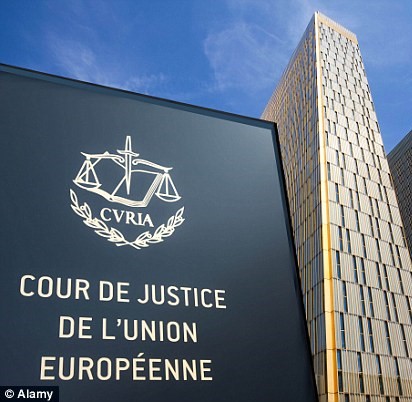
Case could establish critical precedent for the freedom of movement of same-sex couples within the EU
Yesterday, the Court of Justice of the European Union (CJEU) held a hearing in the case of Wojewoda Mazowiecki (C-713/23) concerning the recognition by Polish authorities of a same-sex marriage certificate obtained in another EU Member State.
The hearing follows Poland’s refusal to transcribe into the civil registry a certificate of same-sex marriage contracted in Germany between a Polish citizen and a Polish-German citizen. The couple currently resides in Poland.
The Court is asked whether this refusal conforms with the provisions of the Treaty on the Functioning of the European Union (TFEU) and of Directive 2004/38/EC, which establishes the rights of EU citizens to move and reside freely within the EU, read in conjunction with the European Charter of Fundamental Rights (ECHR), particularly the right to respect for private and family life and the prohibition of discrimination.
The Court is asked to follow the reasoning adopted in the recent judgment in the Mirin case, which confirmed that freedom of movement and other fundamental rights guaranteed under the Charter require authorities to transcribe changes to gender markers and forenames obtained in another EU Member State into their civil registries. By requiring Member States to amend entries in the birth certificates of EU citizens, Mirin ensures that the legal framework for registering and amending citizens’ data is consistent across EU Member States.
This would be a significant step towards the protection of same-sex couples across the EU, especially in light of recent European Court of Human Rights judgments in Przybyszewska and Others v. Poland which found the Polish state in violation of Article 8 (right to respect for private and family life) of the ECHR for failing to provide a specific legal framework recognising and protecting same-sex unions, and in Formela v. Poland which found that Poland breached the same provision for failing to recognise the relationships of two same-sex Polish couples married abroad.
According to Senior Strategic Litigation Officer with ILGA-Europe, Marie-Hélène Ludwig: “A positive ruling in this case would go beyond what the Court found in the Coman and Pancharevo cases and build on the Mirin judgment to recognise that transcription of marriage in civil registries is the only way to effectively ensure freedom of movement of same-sex couples in the EU, notably in countries still deprived of any legal framework recognising their union. This is especially important as marital status – just like one’s gender identity and sexual orientation – is a fundamental aspect of a person’s identity and personal status.”
According to attorneys Pawel Knut and Artur Kula from KMA Law Firm, the lawyers representing the applicants in the case: “The positive outcome of this case of may ensure that the transcription of the foreign marriage certificates of same-sex couples will be finally required from those Member States that still do not provide any form of legal protection for same-sex couples. We believe that this would also strengthen an effective protection for the rights of LGBT families around the EU”.
The Advocate General’s Opinion in this case will be rendered on 3 April 2025.ILGA-Europe is providing support to the applicants and their lawyers in this case.
World Aids Day 2024: Making a world where HIV is history
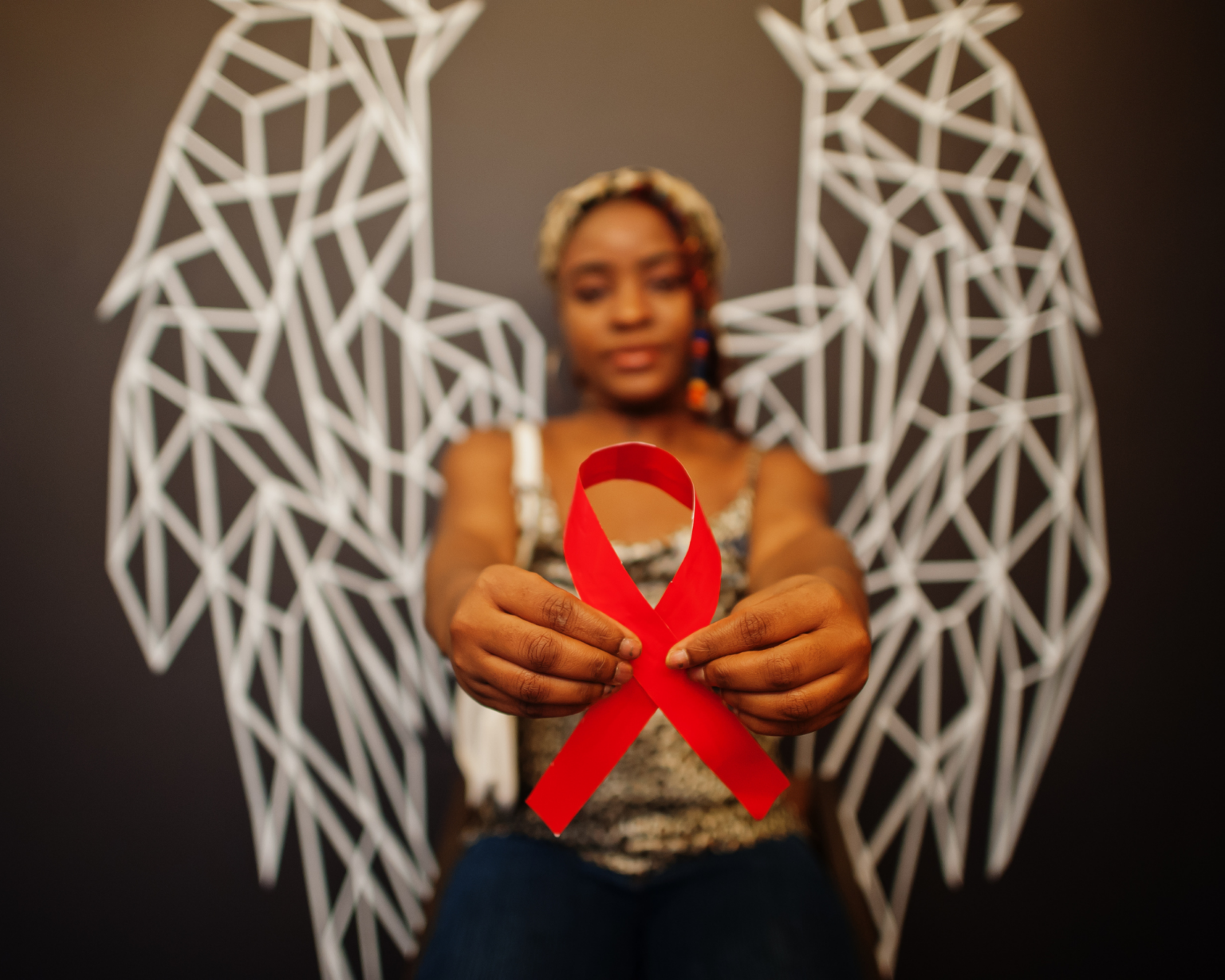
Although it seems a long way off, HIV activists believe that consigning HIV and AIDS to history is an achievable goal. This World AIDS Day, we explore how that goal might become a reality.
World AIDS Day is an opportunity to reflect on the progress made in the fight against HIV, honour those we’ve lost, and recommit to creating a world where HIV is no longer a source of stigma, discrimination, or inequality.
As Paul Wickson, a queer activist from the UK, shares in his powerful statement:
“I lived through the HIV and AIDS crisis of the 80s and 90s. I lost friends to the disease, like so many millions of others… I want to see a world where HIV is history.”
HIV activism, like Paul’s, has brought us closer to that vision, but much work remains. Today, with advances like Undetectable = Untransmittable (U=U) and PrEP, people living with HIV can lead healthy, fulfilling lives. Yet, stigma and barriers to accessing testing and treatment persist, disproportionately affecting LGBTI communities, particularly men who have sex with men and trans people.
The importance of knowing your status
The 2023 FRA LGBTIQ III Survey introduced critical data on HIV testing, shedding light on disparities across sexual orientation, gender identity, and countries. Testing is a key step in ensuring early diagnosis and accessing treatment, yet the numbers reveal stark inequities:
- 47% of cis gay men had an HIV test in the past year, with peaks of 57% in Belgium.
- Among trans women, 43% reported testing, with rates as high as 57% in Cyprus.
- However, only 25% of gay trans men had tested in the last year, dropping to a concerning 2% in Hungary.
These figures show the urgent need for inclusive public health strategies and targeted funding programmes that dismantle barriers and encourage people across all LGBTI groups to access prevention, testing and treatment.
Breaking stigma, saving lives
Stigma and misinformation remain among the most significant challenges in addressing HIV. They discourage testing, silence conversations, and perpetuate discrimination. Yet, as Paul reminds us, activism rooted in personal experiences has the power to transform the narrative:
“I became a queer activist in large part because of my HIV status… I want to see a world ideally where HIV is history. We aren’t there yet, but I have confidence… that is an achievable goal.”
This World AIDS Day, let’s commit to empowering our communities with information, normalising discussions about HIV, and advocating for accessible, inclusive healthcare. Testing is not just a personal choice—it’s a collective step toward dismantling stigma and saving lives.
Take action
- Be informed: Know your status and encourage others to do the same.
- Be vocal: Challenge stigma and misinformation around HIV.
- Be engaged: Support LGBTI organisations advocating for HIV prevention and care.
Together, we can build a future where HIV is no longer a source of inequality but a chapter in history.
Rainbow Digest November 2024
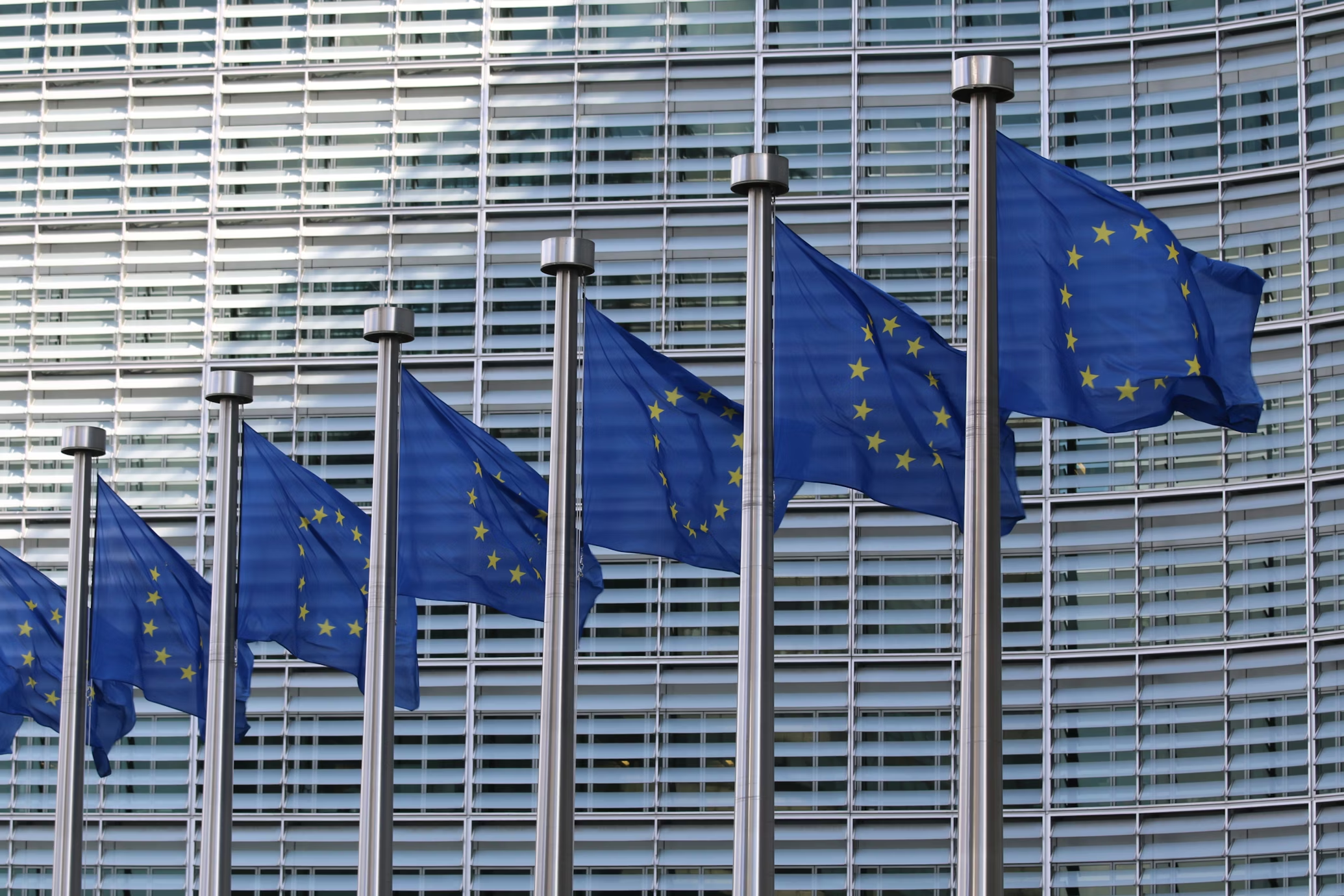
EU member states unite against Hungary’s anti-LGBTI propaganda law at infringement hearing
On November 19, the Court of Justice of the European Union (CJEU) held a hearing in the infringement proceedings against Hungary, initiated by the European Commission over anti-LGBTI legislation introduced in 2021. The European Commission argued that the Hungarian state had seriously and blatantly violated EU law. 16 member states are in full agreement.
Kazakhstan’s government will not classify Feminita as extremist
In a closely watched move, a member of the Parliament of Kazakhstan, speaking on behalf of the ruling party Amanat, formally requested the government to declare the LGBTI civil society organisation Feminita extremist. However, this month Prime Minister Olzhas Bektenov responded to Amanat, stating that labeling the LGBT movement as extremist could be viewed as an infringement on citizens’ rights to participate in public associations.
ILGA-Europe news
Apply for our training on LGBTI homelessness
We’re organising a two-day training on building evidence of LGBTI homelessness and translating it into advocacy actions.
Join our online learning event on Messaging in Times of Crisis
How prepared is your organisation to communicate effectively when a crisis hits?
Register to join us on 4 December.
We’re hiring a new Advocacy Officer
ILGA-Europe is looking for an Advocacy Officer to join our dynamic team to develop new, exciting areas of ILGA-Europe’s policy work aimed at bringing legal, political and social change for LGBTI people across Europe.
Read more and apply by 3 January.
New podcast on new strategies for LGBTI activism
With rising levels of backlash and political scapegoating, how do LGBTI organisations relate to the greater struggle for democracy, freedom and equality? How do we avoid playing into political division in our quest for success? And in a world where there are no easy wins, what does that success look like? The latest episode of The Frontline, recorded at our Annual Conference, looks for new ways forward for activism.
What happened at the 2024 ILGA-Europe Conference
At this year’s ILGA-Europe Annual Conference in Romania, we had three dedicated activist reporters attending sessions across the event, so they could reflect on what was happening right now for the LGBTI movement in Europe and Central Asia.
latest news
BIAS-MOTIVATED VIOLENCE
350 trans people were reported murdered in the last 12 months
TGEU released their annual update of the global Trans Murder Monitoring project. 350 trans and gender diverse people were reported murdered since the 2023 update. This is a significant increase in comparison with the previous year, when 321 cases were reported.
Seeking justice and dignity for Uzbekistan’s LBQT women
As the global community marks the 16 Days of Activism against Gender-Based Violence, the hidden struggles of LBQT women in Uzbekistan bring forward urgent calls for decriminalisation and systemic change. Uzbek activists, working tirelessly to amplify these voices, underscore that criminalisation of LGBT identities and strict patriarchal norms create conditions of unchecked violence and discrimination for lesbian, bisexual, and transgender women, who face isolation and danger within their own communities and families.
EU research on gender-based violence fails to mention LBTI women
The European Union Agency for Fundamental Rights, European Institute for Gender Equality, and Eurostat published a new publication ‘Key Results of the recent EU Gender-Based Violence Study’ in which LBTI women are not mentioned. ILGA-Europe encourage the EU to increase the use of the Commission’s Guidance note on the collection and use of data for LGBTIQ equality, and to work to ensure that future work on gender-based violence in the EU reflects the realities of LBTI women and LGBTI people.
Equality and non-discrimination
Hadja Lahbib is the new Commissioner for Crisis Preparedness, Prevention and Equality
ILGA-Europe have followed the hearing of the Commissioner-designate for Crisis Preparedness, Prevention and Equality Hadja Lahbib very closely, as her mission letter posed questions about the leadership, level of ambition and resources made available to ensure a strong EU Union of Equality and decisive EU action on the rights and equality of LGBTI people. On 27 November, the European Parliament approved the new Commission.
Family
Limiting access to IVF is found unconstitutional in Slovenia
The Constitutional Court in Slovenia found that limitations to access IVF for same-sex couples and single women are unconstitutional. The national assembly has one year to complete the legal changes in the law.
FREEDOM OF EXPRESSION
Uzbekistan plans to ban “LGBT propaganda”
Alisher Qodirov, leader of Uzbekistan’s Milliy Tiklanish (National Revival) party, announced that a draft law banning discussions of LGBT topics is being prepared. He referenced a post by Ivanka Trump supporting U.S. measures against “inappropriate sexual content” and “transgender ideology,” calling the shift in focus “very good.” Qodirov confirmed work on legislation prohibiting LGBTQ+ propaganda but provided no further details.
LEGAL GENDER RECOGNITION
Kyrgyzstan drafts new regulations on legal gender recognition
The Kyrgyz Ministry of Health has drafted a resolution detailing the medical commission process for trans people to begin transitioning. While the document is adequate, legal gender recognition is not established in law, requiring trans people to go to court to change their gender markers. Additionally, as of January 2024, legislation prohibits transitioning for those under 25.
Notice board
- The United Nations High Commissioner for Human Rights is calling for inputs for their upcoming report on combatting discrimination, violence and harmful practices against intersex people. Send your input by 20 December.
- The European Commission has a call for proposals for action grants to support transnational projects on training of justice professionals covering civil law, criminal law or fundamental rights. You can send your proposals by 26 March.
- Digital Freedom Fund is accepting applications for funding for strategic litigation to advance digital rights in Europe. Send your proposals by 17 February.
- European AI & Society Fund launched two new funding opportunities: AI Accountability Grants and AI Act Implementation Grants. Applications are open until 6 January.
- Front Line Defenders is currently accepting nominations for the 2025 Front Line Defenders Award for Human Rights Defenders at Risk. Send your nominations by 10 January.
- IGLYO – International Lesbian, Gay, Bisexual, Transgender, Queer and Intersex Youth and Student Organisation is organising a webinar on 17 December about organisational development. Register now here.
- ILGA World is hiring for a Research Manager. Read more and apply by 8 December.
- International Planned Parenthood Federation (IPPF) European Network is recruiting an Advocacy Intern and a Strategic Communications Intern. You can apply before 12 December.
- The European Endowment for Democracy is looking for a Grants Assistant Coordinator to support its democracy support work. Read more and apply by 8 December.
- Systemic Justice is looking for a Legal Programme Manager. Read more and apply before 20 December.
- Outright International is conducting a survey for 18 to 28-year-olds about their recent educational experiences in primary and secondary school. Respond to the survey by 15 December.
Seeking justice and dignity for Uzbekistan’s LBQT women

Highlighting the hidden struggles of LBQT women in Uzbekistan amid calls for decriminalisation
Trigger warning: This story includes descriptions of torture and violence.
As the global community marks the 16 Days of Activism against Gender-Based Violence, the hidden struggles of LBQT women in Uzbekistan bring forward urgent calls for decriminalisation and systemic change. Uzbek activists, working tirelessly to amplify these voices, underscore that criminalisation of LGBT identities and strict patriarchal norms create conditions of unchecked violence and discrimination for lesbian, bisexual, and transgender women, who face isolation and danger within their own communities and families.
Among these stories of courage is that of Dinora (name changed), a transgender woman who has endured years of persecution and hardship. Detained under Article 120—a law criminalising “sodomy”—Dinora was tortured for simply living authentically. Her experience reflects the resilience demanded of Uzbekistan’s LBQT women. Despite her trauma, Dinora continues to advocate quietly, offering support to others in need.
Similarly, Gulnora, Zilola, and Manzura (names changed) navigate a society that views their identities as threats to family honour. Gulnora faced intense guilt and rejection, trapped between her true self and the societal expectations forced upon her by her family. Zilola, caught expressing affection for another woman, was forced into marriage and subjected to humiliating rituals to “cure” her. Manzura, who found some support within a loving relationship, still faces violent consequences from family members whenever her sexual orientation is revealed. Their lives embody the immense toll of societal and familial pressures, yet each woman has found ways to stand strong in the face of ongoing abuse.
Culture of impunity
The criminalisation of same-sex relations among men promotes a culture of impunity, embedding harmful stereotypes that target all LGBTI people. For LBQT women, especially, rigid gender expectations amplify their suffering, leaving them trapped between cultural norms and a legal system offering no recourse or protection. These women’s stories illustrate not only the isolation they face but also the extraordinary courage required to pursue dignity and self-acceptance.
As we share these voices during the 16 Days of Activism, we are reminded that the fight against gender-based violence must be inclusive of all women, regardless of sexual orientation or gender identity. Real justice and dignity for LBQT women in Uzbekistan demand urgent legal reform: the decriminalisation of same-sex relationships and protections for sexual orientation and gender identity within domestic violence laws.
For Dinora, Gulnora, Zilola, Manzura, and countless others, we must continue to call for a world where they can live freely and safely, without fear of persecution. Their courage in sharing these stories is a testament to resilience—a resilience that we hope will inspire lasting change.
For more on the experiences of LGBT people in Uzbekistan and the urgent call for decriminalisation, read the full report in English.
EU member states unite against Hungary’s anti-LGBTI propaganda law at infringement hearing

Yesterday, the European Commission was joined by 16 Member States and the European Parliament in a hearing at the court of Justice of the European Union on whether Hungary’s anti-LGBTI Propaganda Act is a violation of EU law.
On November 19, the Court of Justice of the European Union (CJEU) held a hearing in the infringement proceedings against Hungary, initiated by the European Commission over anti-LGBTI legislation introduced in 2021, which censors inclusive sex education, equates LGBTI ‘lifestyles’ with paedophilia, blocks adoption for LGBTI couples, and restricts content in media and advertising.
The Commission stressed that the Hungarian state had seriously and blatantly violated EU law by passing a law that stigmatises the LGBTI community under the guise of “child protection”. This infringement is, in the Commission’s view, systemic, intentional and widespread, and constitutes a violation of Article 2 of the Treaty on European Union (TEU). This provision enshrines the fundamental values of the EU, including the obligation of Member States to respect human dignity, freedom, equality, the rule of law and the rights of persons belonging to minorities.
The hearing was attended by the Hungarian government, the governments of Belgium, Denmark, Germany, Estonia, Ireland, Greece, Spain, Luxembourg, Malta, the Netherlands, Finland, Sweden and the European Parliament.
All the Member States that spoke at the hearing expressed agreement with the Commission’s position that core values are integral to the identity of the European Union. These values represent a shared public order, based on mutual trust, which all Member States have committed to uphold upon their accession. The effective implementation of EU law, and thereby respect for these fundamental values, relies on good faith from the Member States. They argued that this good faith is absent in the case of the Hungarian propaganda law.
Several speakers highlighted the harmful impact of the legislation, pointing out issues such as the absence of sex education in public schools, the censorship of exhibitions, and fines imposed on bookstores. The representative of the Dutch government mentioned that 87.5% of the inquiries the Dutch media authority receives from foreign counterparts come from the Hungarian Media Council, asking about content that is fully accepted in the Netherlands and is considered a normal part of daily life. The Dutch government argued that the ban on LGBTI content in the media is not just a domestic issue for Hungary, but a concern for the entire European Union.
The contested legislation violates rights enshrined in the EU Charter of Fundamental Rights, such as the right to human dignity, freedom of expression, the right to private and family life and the prohibition of discrimination. As several Member States also noted, the law runs counter to the European Court of Human Rights’ judgement condemning the 2013 Russian anti-LGBT law, which said: “by adopting such laws, the authorities promote stigmatisation and prejudice and encourage homophobia, which is incompatible with the concepts of equality, pluralism and tolerance in democratic societies.”
According to Eszter Polgári, Head of the Legal Programme of Háttér Society, an NGO representing LGBTI people in Hungary: “The infringement proceedings against the Hungarian anti-LGBTQI legislation have become the largest human rights case in the EU, where the Court of Justice has to decide not only on the violation of the relevant sectoral directives, but also on whether the stigmatising and exclusionary legislation against sexual and gender minorities violates the EU’s fundamental values. If it answers yes to the latter, it will send a clear message to all Member States: no minority group, including the LGBTQI community, should be used for political purposes and demonised.”
Katrin Hugendubel, Advocacy Director at ILGA-Europe added: “Yesterday’s hearing was a key moment in our common efforts against the Hungarian anti-LGBTI law, as well as similar laws that are being proposed or in force across the EU. We were heartened to see the clear comments made by the European Commission and member states, rightly condemning Hungary’s anti-LGBTI law as a violation of EU law and making it clear that member states can no longer act against human rights with impunity, nor can governments go on instrumentalising minorities for political gains without being held accountable. A strong judgement in this case will send a strong message to other member states who have been adopting or keep proposing similar laws violating fundamental rights, making clear that they can no longer act against human rights with impunity.”
The Advocate General will deliver his opinion on the case on 5 June 2025.
Read Háttér Society’s press release on the hearing (in Hungarian) here.
The Frontline: LGBTI activism: Courage to seek new strategies
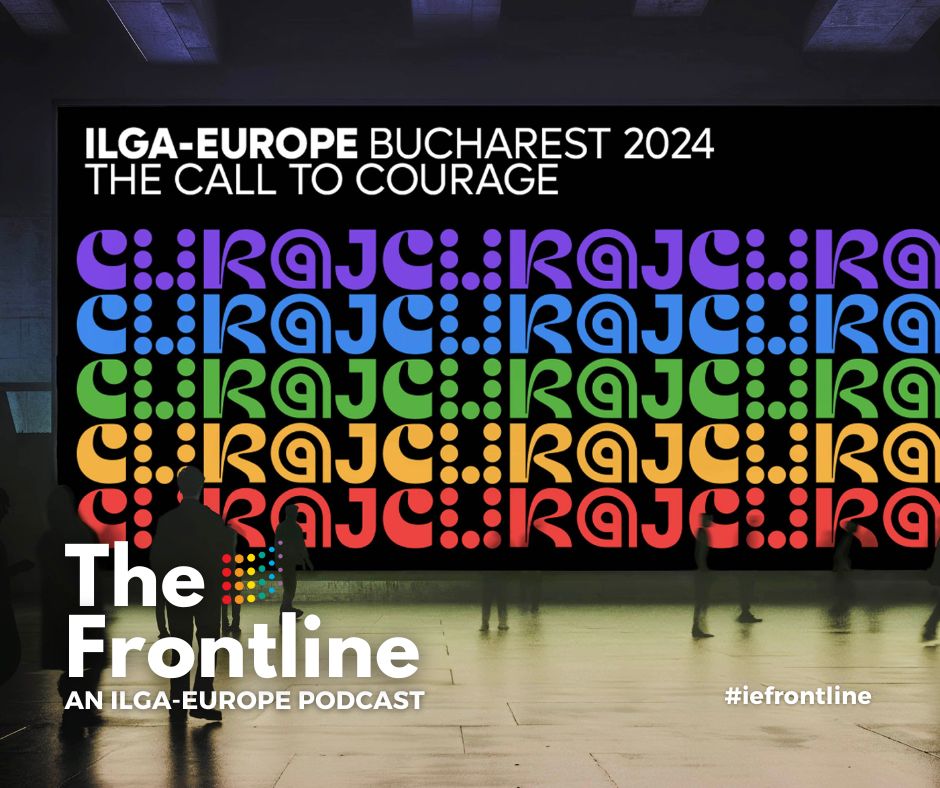
This summer in Bulgaria, as two new anti-LGBTI laws were fast-tracked in advance of forthcoming elections, a cross movement effort came together to try and stop it.
With rising levels of backlash and political scapegoating, how do LGBTI organisations relate to the greater struggle for democracy, freedom and equality? How do we avoid playing into political division in our quest for success? And in a world where there are no easy wins, what does that success look like?
For our panel on finding the courage to seek new strategies in current political contexts, ILGA-Europe’s Advocacy Director, Katrin Hugendubel is joined by Irena Moozova, Deputy Director General responsible for the International Dimension of Justice Policies, Rule of Law, and Equality in the European Commission, Béatrice Fresko-Rolfo, General Rapporteur for LGBTI rights at PACE in the Council of Europe, Denitsa Lyubenova, lawyer from the LGBTI organisation Deystvie in Bulgaria, and Magda Rakita from Fundacja Interakcja in Poland.
Online learning session for LGBTI activists: Effective messaging in times of crisis
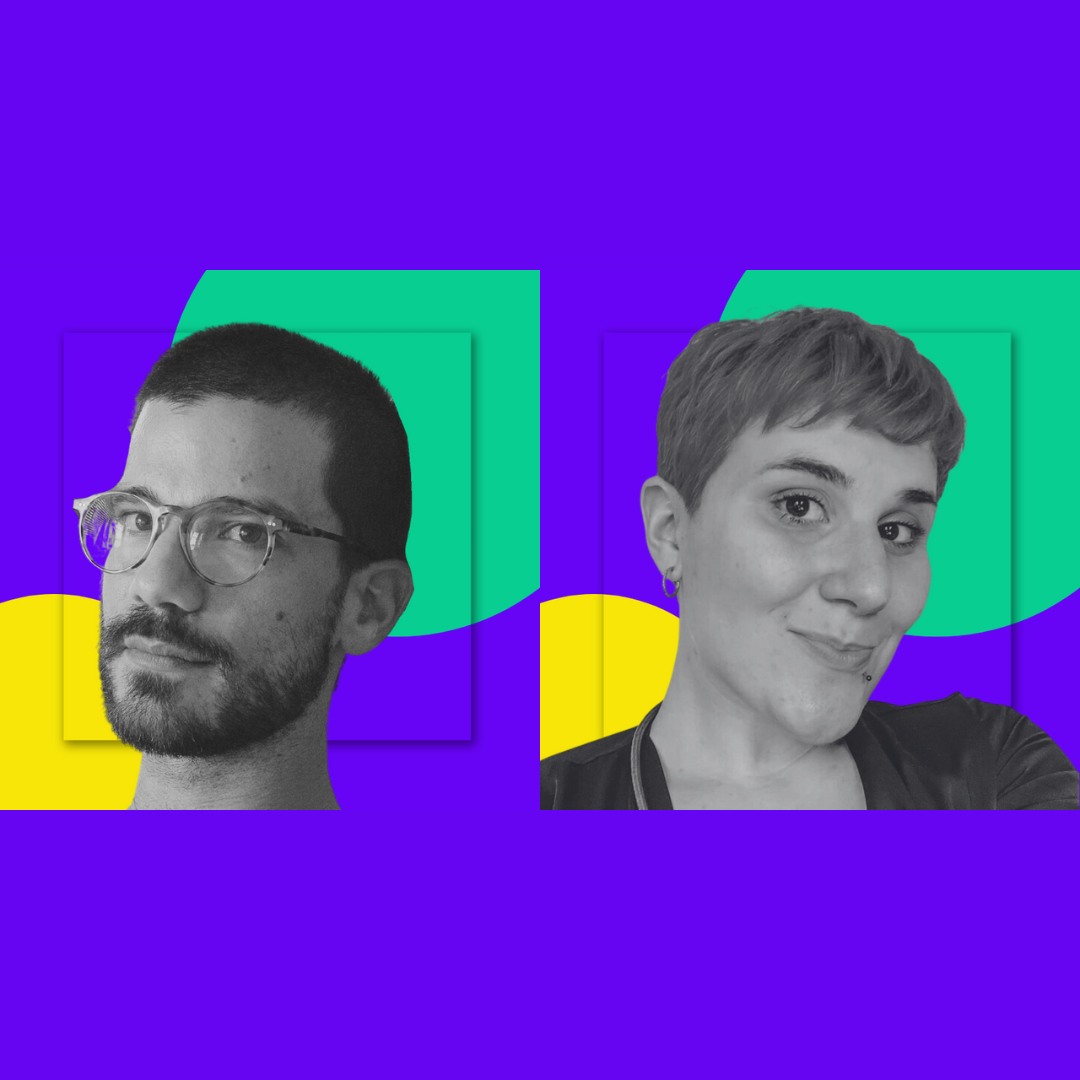
When a small LGBTI organisation faces sudden public scrutiny, knowing how to craft messages that unite rather than divide is crucial.
In this vital online session for LGBTI activists in Europe and Central Asia, we’ll explore how to frame messages that build a connection using real examples of organisations that have responded thoughtfully and strategically to crises.
From the first response to post-crisis engagement, we’ll discuss how to adapt your communications to meet the evolving needs of your communities while staying aligned with your long-term vision.
- Don’t wait for a crisis to hit!
- Join us to learn and exchange ideas on turning communication challenges into opportunities for resilience and connection.
- Walk away with ready-to-use tools, adaptable messaging frameworks, and the know-how to handle anything from backlash to unexpected media attention.
This 90-minute session will take place on Wednesday, December 4, 2024 (12.00-13.30 CET). Register for this session here: https://ilga-europe-org.zoom.us/meeting/register/tZIlcumppjgoGdEPX7qzEI4J97hqVnQpC8vP
Trainers
AJ Venturini (they/them)
AJ is an expert LGBTIQ+ campaigner, facilitator, and life coach with over a decade of experience delivering high-impact, creative projects on social change issues ranging from LGBTIQ+ to refugee rights. In their roles for ILGA-Europe, Amnesty International, Act Build Change and Gendered Intelligence, amongst others, they have been supporting change-makers, activists, and grassroots groups to deepen their collective care and wellbeing practices, knowledge, skills, and confidence to campaign for their rights and achieve their goals.
Evá Papadakis (he/they)
Evá is a multilingual strategic and digital communication expert, with over a decade of experience leading diverse teams and creating impactful global strategies to elevate the work of mission-driven international organisations focusing on the intersection of climate, refugees, and LGBTIQ+ rights. They have authored articles, toolkits and reports. Evá has field experience with UNHCR and contributed on Diversity, Equality & Inclusion initiatives at UN Globe & Global Advisory Group Member on Inclusion and Diversity for the High Commissioner for Refugees.
Call for participants: The Power of Data: Collecting and using data to tackle LGBTI homelessness
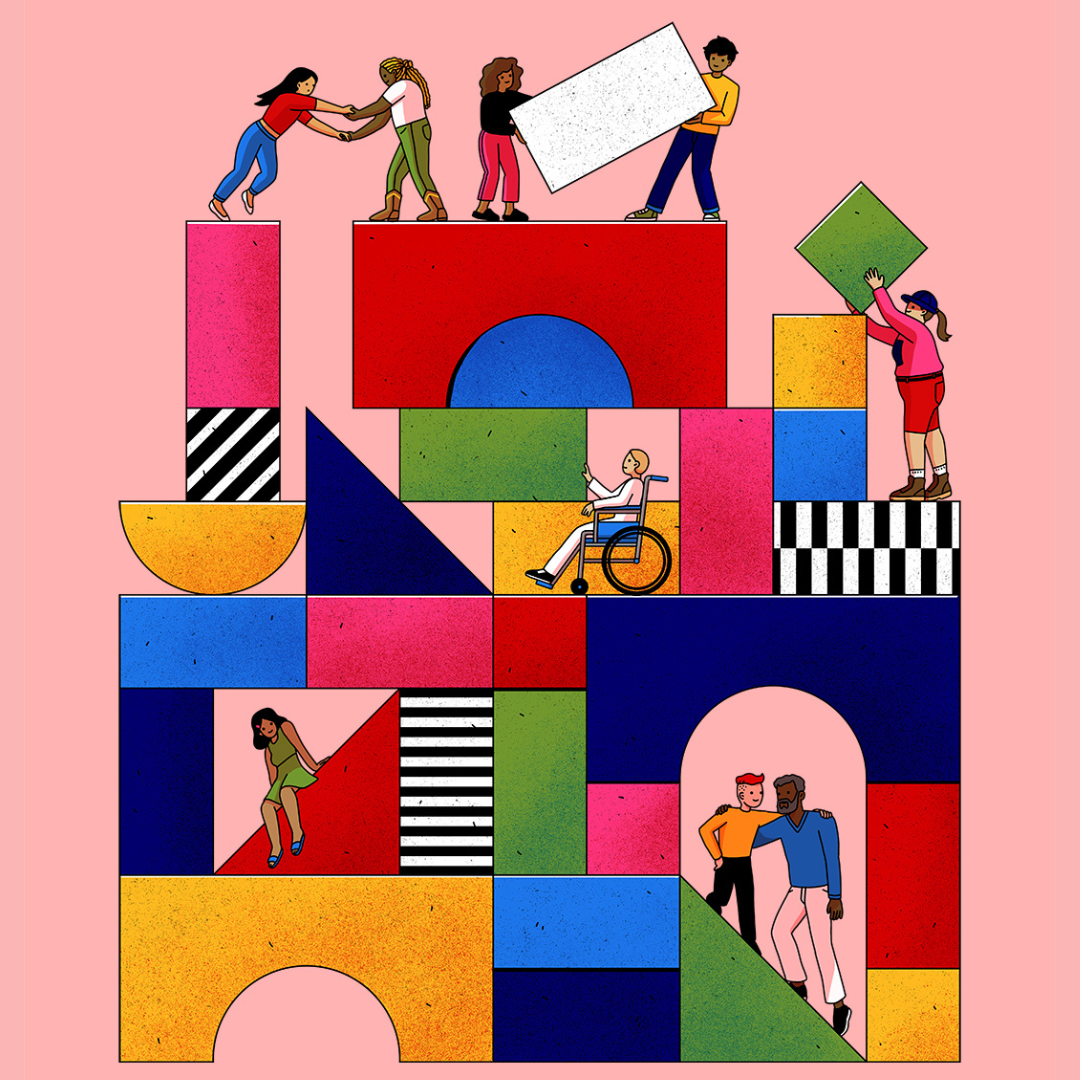
The training is organised by ILGA-Europe and delivered by dedicated researchers from Analysis Group.
It will take place in Brussels on 28 & 29 March 2025, with arrival on 27 March and departure on 30 March.
We know that data is key in the work on LGBTI homelessness. We need it to inform and support advocacy strategies and actions, campaigns, and alliance-building work. At the same time, very few groups can run full-scale research or outsource it.
Yet, organisations often already have access to unique data and evidence through their ongoing work and relationships with communities and allies. Leaning in on what is already in place, data gathering does not need to be a massive and expensive undertaking, and it can be done accessibly and creatively.
This training will equip LGBTI organisations working on LGBTI homelessness with accessible and fit-for-purpose ways to collect data and translate it into advocacy asks.
What you will get from the training
Here is a glimpse at what you can expect over the two days:
- A learning journey, from formulating a research question to translating it into a survey, to understanding the subsequent data and linking it back to your advocacy goals
- Tips and tricks for in-house data analysis and report writing in support of your advocacy goals
- A half-day group session in which you will apply and develop skills in a collaborative setting guided by the trainers
- Networking and mutual learning with a group of 15 activists from LGBTI organisations working on LGBTI homelessness across Europe
- Signposting to further resources and the potential of more follow-up coaching after the training.
The programme will be shared with selected participants closer to the event.
Practical details
- Training dates: 28 & 29 March, 2025
- Travel dates: arrival on 27 March, departure on 30 March. (Departure in the evening of 29 March is also possible provided that you attend the whole event)
- Language: English
- Location: Brussels
- Participation costs are covered by ILGA-Europe (see below)
- Participants are selected through an open competitive call. Number of participants: up to 15.
Who is invited to apply
ILGA-Europe offers this training to LGBTI organisations and groups from across Europe.
For The Power of Data to be an enriching experience, our aim is to bring together a pool of diverse organisations and activists in terms of strategies, profiles, experiences, and geography. Thus, we invite a maximum of one person from an organisation to apply.
The Power of Data training is right for your organisation if:
- It is an LGBTI organisation based and operating in Europe [1];
- Your organisation works on addressing LGBTI homelessness or has concrete plans that require using evidence on LGBTI homelessness, and needs to build its capacity in gathering and analysing data to advance this work;
- Your organisation has a clear vision of how the skills gained during the training will support your work on LGBTI homelessness;
- Your organisation has the capacity and plans to integrate the knowledge and skills gained in the training in its work;
- You, as the delegated participant, are supported by your organisation to dedicate time to the event, attending it in full, and to bring the knowledge back to the team.
As the delegated participant, you do not need to have in-depth skills in research or advocacy, but you need to hold in-depth knowledge of your organisation’s work on LGBTI homelessness and its specific needs and activities around data gathering, and you should be in a position to bring the knowledge from the training back to your organisation to apply it in practice.
[1] For this call Europe is considered to include the following countries: Albania, Andorra, Armenia, Austria, Azerbaijan, Belarus, Belgium, Bosnia and Herzegovina, Bulgaria, Croatia, Cyprus, Czech Republic, Denmark, Estonia, Finland, France, Georgia, Germany, Greece, Hungary, Iceland, Ireland, Italy, Kosovo, Latvia, Liechtenstein, Lithuania, Luxembourg, Malta, Monaco, Montenegro, Netherlands, North Macedonia, Norway, Poland, Portugal, Republic of Moldova, Romania, Russian Federation, San Marino, Serbia, Slovak Republic, Slovenia, Spain, Sweden, Switzerland, Turkey, Ukraine, United Kingdom.
How to apply
Please choose one representative from your organisation to apply.
Submit a completed application form by December 16, 2024, 23:59 (CET) to Nadzeya Husakouskaya at nadzeya@ilga-europe.org. Please indicate the title of the event (The Power of Data) in the subject line.
We will inform you about the outcomes of the selection by January 15, 2025 the latest.
Accessibility note: We aim at ensuring that this event is accessible for everyone in attendance. Please share your accessibility needs in the application form.
Costs of participation
ILGA-Europe covers participation costs for all selected participants, specifically:
- Accommodation in shared rooms with breakfast, with check-in on 27 March and check-out on 30 March;
- Travel costs to and from Brussels. If you are selected, you will need to book your own travel within the approved amount. You will get these costs reimbursed after the event, upon full attendance. If your organisation is working without any funding and unable to pre-book tickets for you, you can be exempt from this requirement. More information will be shared with selected participants;
- Visa costs and compulsory insurance;
- Joint meals: lunches and coffee breaks on 28 and 29 March, and a joint dinner on 28 March;
- Per diem in cash at the event that will cover the rest of the meals and subsistence on 27-30 March.
Can your organisation cover participation costs of its delegate fully or partially? Please mention it in the application form. This will allow us funding more organisations to attend the training in case of high competition. Please note that ability to contribute by cost-sharing is not a selection criterion.
Trainers and organisers
The training is organised by ILGA-Europe and delivered by a group of researchers from Analysis Group, building on our partnership throughout 2023-2024.
ILGA-Europe partnered with Analysis Group to build the movement’s knowledge and skills in gathering and using data in activism on LGBTI homelessness.
Analysis Group is one of the largest international economics consulting firms and a pro-bono partner of ILGA-Europe. From August 2023 to August 2024, Analysis Group joined ILGA-Europe’s No One Left Behind programme on LGBTI homelessness as research experts and coaches, supporting five LGBTI organisations in their research and data gathering projects on LGBTI homelessness.
Trainers:
- Mario Luca (he/him). Mario joined Analysis Group after completing his PhD in economics on extreme right voting and the refugee crisis in Italy. He specialises in empirical analysis for damage estimation and big data and machine learning applied to competition. Mario worked on multiple political projects and is currently coordinating the partnership with ILGA-Europe and AG Pride, the firm’s LGBTI association, in Europe.
- Giovanni Morzenti (he/him) is an economist who specialises in antitrust policy, competition matters and litigation. He volunteered in the epilepsy ward of the Piccolo Cottolengo di Don Orione in Milan and at the Caritas soup kitchen in Bergamo, where homeless people could find a warm place to eat and programs to access secure housing.
- José Alfonso Muñoz-Alvarado (he/him) is an economist consultant with a Ph.D. in Family and Labor Economics. He specialises on applying data analysis to support competition cases and market studies. Alfonso brings a collaborative approach to projects, handling data analysis and working closely with team members across disciplines.
Coordinator: Nadzeya Husakouskaya (they/them), Senior Programmes Officer, ILGA-Europe. Nadzeya leads No One Left Behind programmes at ILGA-Europe focusing on socio-economic justice.
Contacts
If you have any questions about The Power of Data, please reach out to Nadzeya via nadzeya@ilga-europe.org.
Answering the call to courage: What happened at the 2024 ILGA-Europe Conference
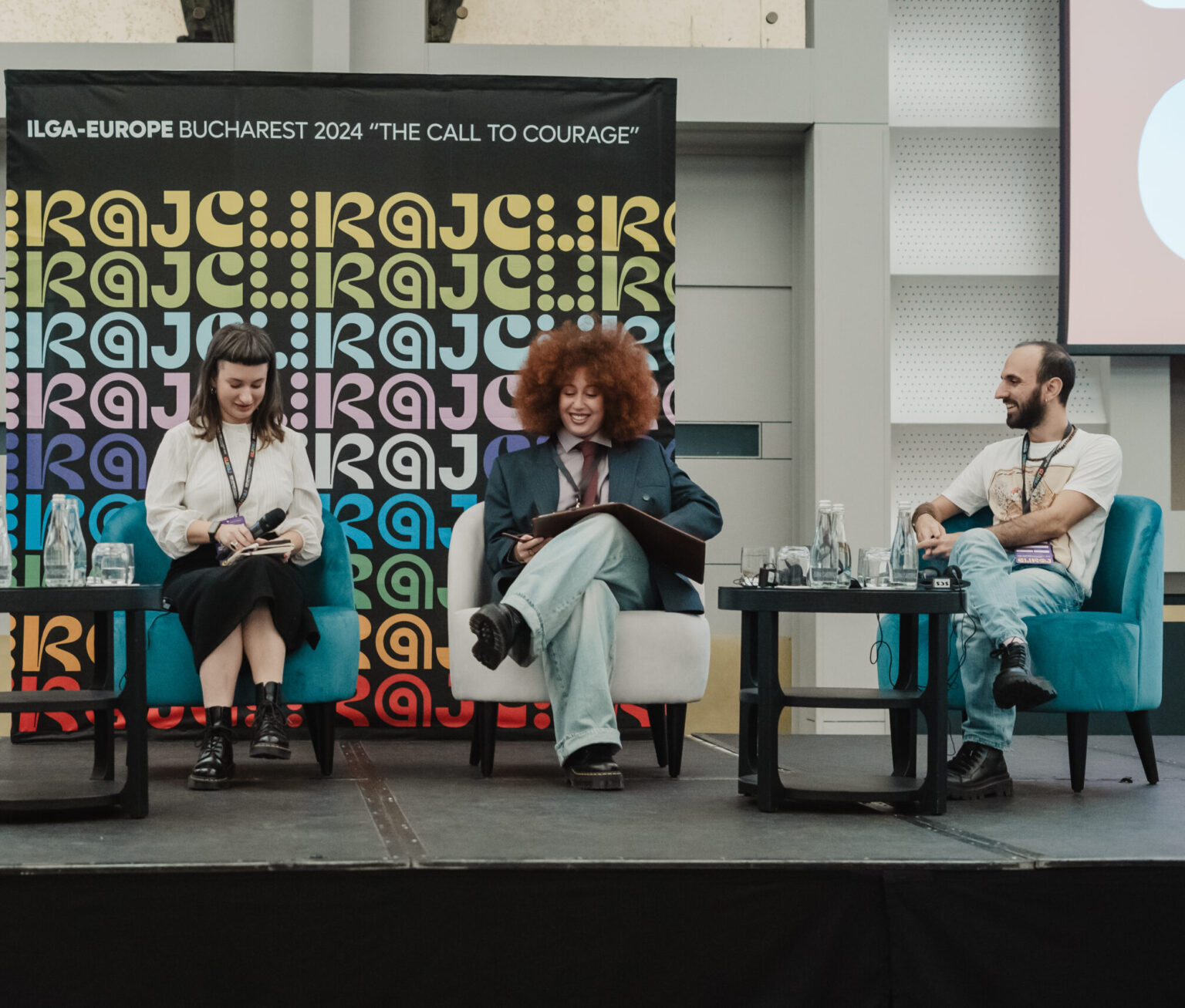
At this year’s ILGA-Europe Annual Conference in Romania, we had three dedicated activist reporters attending sessions across the event, so they could reflect on what was happening right now for the LGBTI movement in Europe and Central Asia. Here is what they found.
The 26th ILGA-Europe Conference, held in Bucharest this October, was a vital meeting ground for activists, leaders, and changemakers from across the LGBTI community, at this particular time in our world. Beyond its extensive sessions and networking opportunities under the theme, The Call to Courage, this year’s event featured the reintroduction of conference reporters—three dedicated activist voices tasked with connecting the threads of reflection, insight, and shared experience throughout the event. These reporters, Rina Rybalko from Ukraine’s Gender Stream, Sarah Arsane of Pride des Banlieues in France, and Andrea Ruggeri from Italy’s Gruppo Trans, shared their expectations, reflections, and key takeaways over the course of the packed three days.
Hope and expectation
Rina approached the conference with hope, acknowledging the uncertainties facing activists but focusing on the potential for solutions. “Since this is my second time at the conference, I know that we will talk about challenges a lot,” she shared. “And I hope that in these discussions we will find together decisions and solutions that we will bring back home to our communities.” This outlook was a testament to the resilience that Ukrainian activists have shown, especially amidst Russia’s ongoing full-scale invasion and its impact on LGBTI communities.
As the conference began, Sarah expressed excitement at the rare opportunity to connect with likeminded people. “I’m really looking forward to meeting LGBTQ+ activists from all over the world and hearing the unique stories and struggles,” she said. Her anticipation highlighted the conference’s role as a space for exchange, learning, and mutual empowerment.
Andrea, acknowledging both the gravity of their work and the community’s strength, spoke with poignant honesty. “Yesterday was not a good day for my country,” they remarked, referring to a newly passed law in Italy that criminalises seeking surrogacy abroad, a move that threatens LGBTI families and sets a concerning precedent. This difficult reality highlighted their hope to find emotional and political support while drawing strength from shared experiences.
Reflections during the conference
As the conference unfolded, each reporter shared insights into their evolving experiences. For Sarah, moments of connection stood out. Reflecting on the importance of unity and exploring vulnerabilities to promote growth, she said, “I particularly enjoyed the discussions on the various issues facing our communities. Being a Muslim woman, a racialised lesbian, and from working-class neighbourhoods, this particularly moved me.”
Rina was moved by the power of collective communication. “The highlight for me was communication—panel discussions, workshops, and networking, which was meaningful, fruitful, and sometimes challenging,” she noted. This understanding emphasised the importance of shared spaces where LGBTI voices can overcome barriers, address urgent needs, and build alliances.
Andrea’s reflections captured the diverse and layered nature of the Conference. “In one room, people are getting pragmatic by discussing how to tackle disinformation campaigns; in another, others are sharing how resilience keeps them grounded,” they observed. This collection of experiences showed how different strategies and discussions come together to strengthen our shared determination.
Courage as a takeaway
As the conference drew to a close, the atmosphere was charged with renewed determination. Rina spoke of courage as a verb: “It means to act, even when we are in a state of maximum uncertainty, for your own sake, for the sake of others.” She left the conference inspired by the dedication of fellow activists and motivated by the focus on meaningful change.
Sarah, in her closing words, summed up the spirit of solidarity at the Conference and within the movement. “What I take away is the strength of our community and the power of alliance… even in difficult times, we are stronger together,” she affirmed. Her speech served as a reminder that collective resilience, empathy, and unity are vital for progress.
Andrea concluded by highlighting a lesson learned year after year: “Queer people are taking care of themselves and teaching others how to take care of their communities.” This ongoing truth showed the depth of support and self-sustainability within the LGBTI movement, despite outside challenges.
A unified future
The conference reporters’ voices were a strong reminder that, while activists in our LGBTI movement may come from different contexts, the shared fight for dignity, safety, and rights binds them together. As they return to their home countries from this year’s Conference—whether grappling with legislative struggles, seeking innovative advocacy strategies, or rebuilding communities torn by war—they carry with them the shared knowledge, strength, and hope forged in Bucharest.
Statement following the hearing of the EU Commissioner-designate for Crisis Preparedness, Prevention and Equality
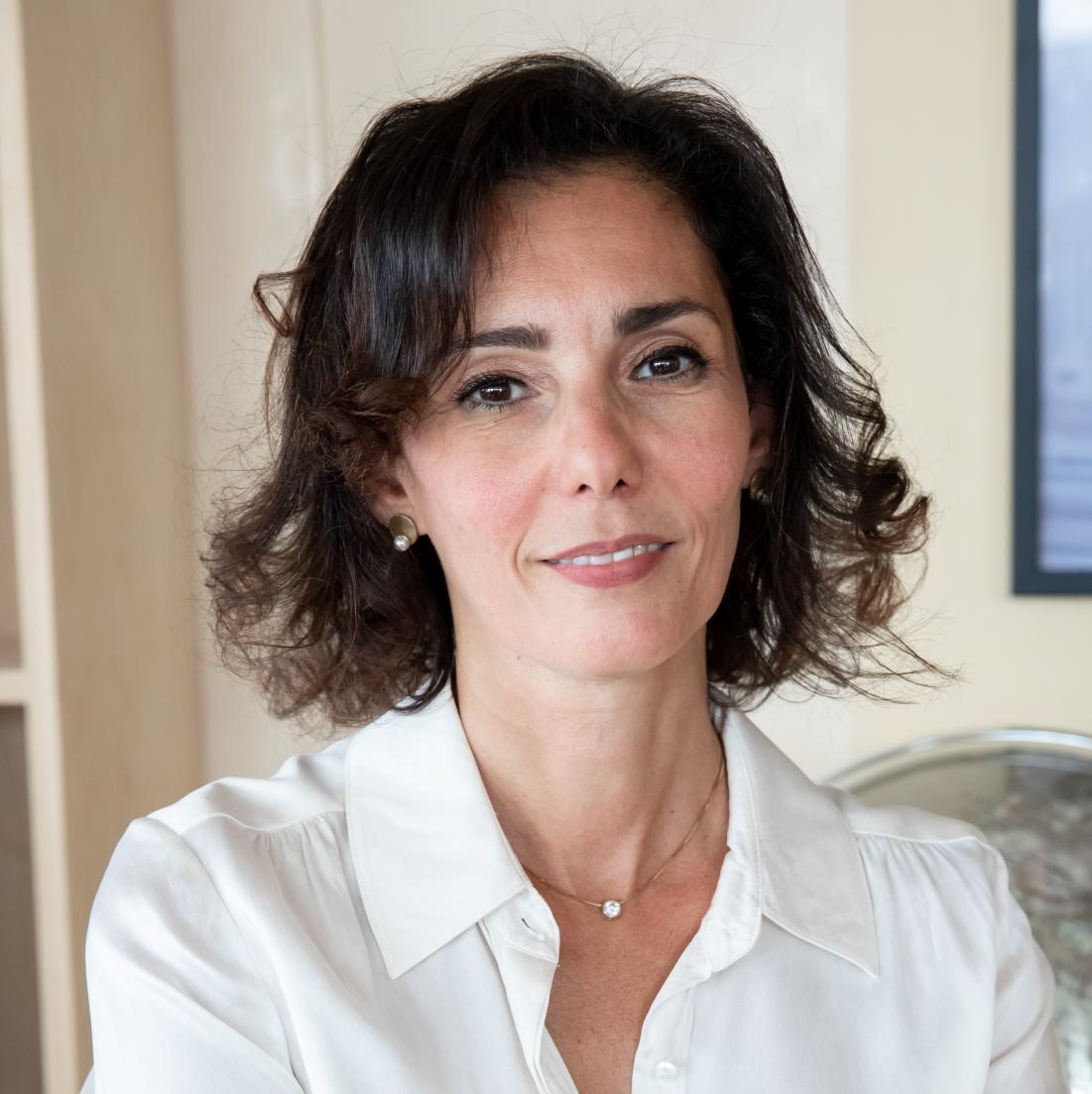
At the EU Commissioner confirmation hearings today, Commissioner-designate for Crisis Preparedness, Prevention and Equality, Hadja Lahbib voiced a strong commitment towards protecting and advancing the rights of vulnerable groups, including LGBTI people. Here is ILGA-Europe’s response.
ILGA-Europe have followed the hearing of the Commissioner-designate for Crisis Preparedness, Prevention and Equality Hadja Lahbib very closely, as her mission letter posed questions about the leadership, level of ambition and resources made available to ensure a strong EU Union of Equality and decisive EU action on the rights and equality of LGBTI people.
We are glad to have heard a strong commitment to the implementation of existing legislation regarding gender equality, gender based violence and protecting the rights of vulnerable groups. Strong implementation is indeed needed, not only of EU directives, but also on key CJEU judgements that for the moment remain empty promises for LGBTI people and their families across the EU. We welcome Lahbib’s commitment to the strengthened use of infringement procedures and fundamental rights conditionality in the distribution of EU funds. Moving forward, we will need to see the European Commission continue to be strong in its opposition to the ongoing backlash against the fundamental rights of LGBTI people that is growing in many EU member states.
But the level of ambition cannot stop there. The Commission needs to continue to be the key guardian of the Treaties and show strong leadership, also in light of shifting majorities in the Council, and work with member states to close the legal gaps in protection against discrimination and bias-motivated hate, as well as to make freedom of movement a reality for all. The Commmission needs to continue to put fundamental rights violations, such as intersex genital mutilation and forced sterilisation, on the agenda of EU institutions and actively work with member states to ban them.
We welcome that the Commissioner-designate clearly set out that she will meet with LGBTI organisations representing the people on the ground to assess the first EU LGBTIQ strategy and discuss together what needs to be included in the follow-up strategy.
We have already shared our assessment of the next steps needed with the European Commission and are looking forward to meeting with the Commissioner, if and when she is confirmed, as soon as possible to discuss how to ensure real mainstreaming throughout all services in the European Commission, and what concrete actions and initiatives we need to see in the next EC LGBTIQ Equality strategy to ensure strong leadership as well as the necessary support and resources.
Next steps
The committees’ chairs and political group coordinators will meet without delay to assess the performance and qualification of the Commissioner-designate. Based on the committee recommendations, the Conference of Presidents (EP President Metsola and political group chairs) is set to conduct the final evaluation and declare the hearings closed on 21 November. Once the Conference of Presidents declares all hearings closed, the evaluation letters will be published.
The election by MEPs of the full college of Commissioners (by a majority of the votes cast, by roll-call) is currently scheduled to take place during the 25-28 November plenary session in Strasbourg.
Rainbow Digest October 2024

Groundbreaking judgement from the EU Court of Justice
On 4 October, the CJEU ruled that the refusal of an EU member state to recognise changes of forename and gender marker acquired in another member state is contrary to the rights of EU citizens.
“This judgement will have an immensely positive impact, increasing legal protection for all trans people in the EU,” said ILGA-Europe’s Senior Strategic Litigation Officer, Marie-Hélène Ludwig
Kazakhstan risks further affiliating with Russia
On 9 October, Mr Rinat Zaitov, a member of the Parliament of Kazakhstan, formally requested the government to declare a leading LGBTI civil society organisation as extremist, which would lead to prohibition on its operation and the penalisation of its staff. In a joint statement seven LGBTI organisations strongly urged the government not to follow the path that Russia and its allies have chosen in recent years.
“We call on the Government of Kazakhstan not to declare Feminita or any civil society organisation supporting LGBTI people as extremist, and to duly protect civil society organisations from attacks from third parties, as well as to focus on actual public concerns.”
ILGA-Europe news
430+ LGBTI activists and allies taking courage in Bucharest
Our 26th Annual Conference took place between 16-19 October in Romania, hosted by local organisations, ACCEPT and MozaiQ. More than 430 people, from 53 countries, from all manners of organisations and groups, were with us for over 70 different sessions, including workshops and inspiration spaces, self-organised sessions, connecting spaces, social events, and many more empowering and thoughtful moments.
Our theme this year was: ‘The Call to Courage’. In the current geopolitical landscape, in which LGBTI rights are more at risk, how can we stay ahead of the curve? To answer this question, our participants were called upon to courageously seek new strategies and work across differences. The result was one of our most vital and successful conferences yet, facilitating many courageous conversations and meaningful moments.
Latest news
ASYLUM
OII Europe highlights experiences of intersex asylum seekers
On this year’s Intersex Awareness Day, OII Europe shares the experiences of intersex refugees and asylum seekers and their families, and the very specific challenges they face.
EQUALITY AND NON-DISCRIMINATION
Safety and rights for lesbians in Europe
On 3 October, the Parliamentary Assembly of the Council of Europe adopted a crucial resolution to combat violence and discrimination against lesbian, bisexual, and queer women across Europe.
FAMILY
Italy makes it illegal to seek surrogacy abroad
On 16 October, Italy’s Senate voted in favour of a legislation that would ban couples to go abroad to have surrogacy, imposing jail terms of up to two years and fines of up to one million euro.
HEALTH
Trans Health Map 2024 is out
TGEU — Trans Europe and Central Asia launched their 2024 edition of the Trans Health Map that represents the availability and accessibility of trans-specific healthcare in the 27 Member States of the European Union.
New Council of Europe report on healthcare for LGBTI people
Barriers in access to healthcare for LGBTI people are widespread. This report, published by the Council of Europe, goes into extensive detail on these barriers, and provides a collection of good and promising practices.
HOUSING
An event at the European Parliament will explore LGBTI homelessness
One in five LGBTI people experience homelessness during their lives. Join us for an event on November 21 in the European Parliament in Brussels to learn about why LGBTI people are at increased risk of housing difficulty and poverty, and what we can do to solve this at EU level. Hosted by ILGA-Europe, FEANTSA and Kim van Sparrentak MEP (Greens/EFA), this event will connect those working on housing, homelessness and human rights for a lively discussion of the opportunities and challenges ahead.
Register now if you will be in Brussels on 21 November.
HUMAN RIGHTS DEFENDERS
Realising protection for human rights defenders in Europe
As human rights defenders in the EU are increasingly targeted by various attacks, a coalition of civil society organisations drafted policy papers calling on the EU to adopt an effective protection ecosystem for human rights defenders in the EU.
Notice board
- Human Rights Watch is seeking a director of their LGBT Rights Program. Apply before 3 November.
- International Trans Fund is accepting applications for grants from trans-led organisations worldwide with annual budgets below $100,000. Apply before 2 December.
- GATE is offering financial assistance to trans and gender diverse-led organisations, to cover the fees associated with writing reports for submission to UN human rights mechanisms. Send your applications by 3 November.
- Astraea Foundation is hiring an Associate Director for the Intersex Human Rights Fund. Apply before 29 November.
- On 7 November, IGLYO will host a webinar on the reality of being an LGBTQI refugee or asylum seeker in Europe. Register now for the online event.
- Council of Europe launched a grant for NGOs to enhance the mutual engagement between the Council of Europe and civil society organisations. Apply before 1 December.
- Outright International opened the application process for their 2025 Advocacy Week – a week of high-level meetings and activities at the United Nations in New York. Apply by 18 November.
The ILGA-Europe Annual Conference 2024 in Pictures
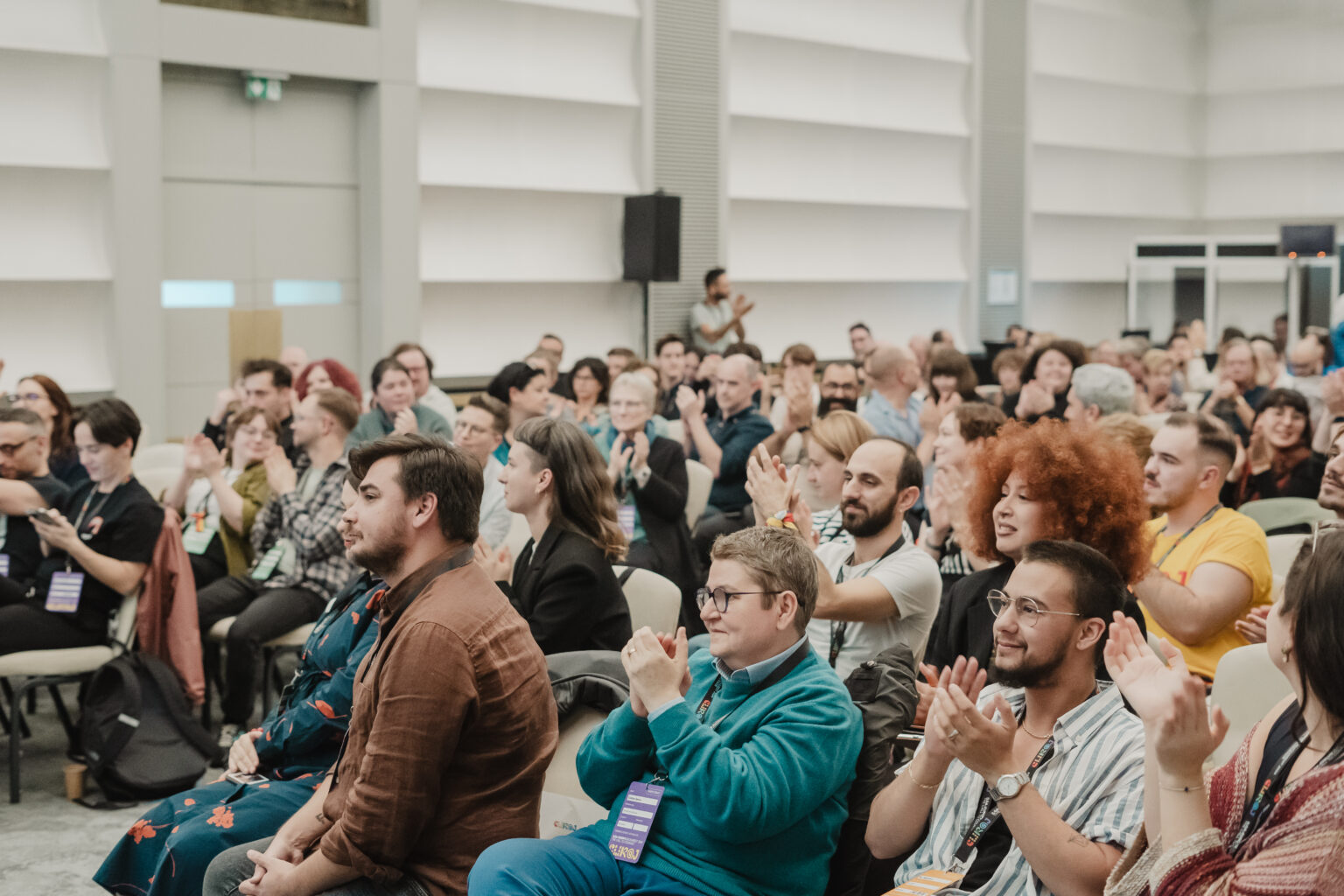
For four days in Bucharest, our photographer was there to capture every memorable moment of this year’s Annual Conference. Here are the highlights!
This October, we came together in Bucharest with over 400 LGBTI activists and allies from across Europe and Central Asia for ILGA-Europe’s Annual Conference. And what a journey it was! Four inspiring days filled with connection, sharing, strategising, and bolstering resilience for the challenges that lie ahead, all within an atmosphere of support and mutual empowerment. This year’s theme, The Call to Courage, rang through each panel, workshop, and conversation as we tackled pressing issues and explored new ways forward. And, of course, there were moments of celebration too, including a night Karaoke and a closing celebration with drag performances paired with local DJs.
Our heartfelt thanks go to our wonderful hosts, ACCEPT and MozaiQ, and to our talented photographer Larisa Balta, who captured the spirit of the conference. Here, we share a snapshot of those unforgettable days!
For a much larger selection of photos, be sure to check out our albums on Facebook.
The ILGA-Europe conference, the largest LGBTI conference in Europe and Central Asia, meets in Bucharest this weekend
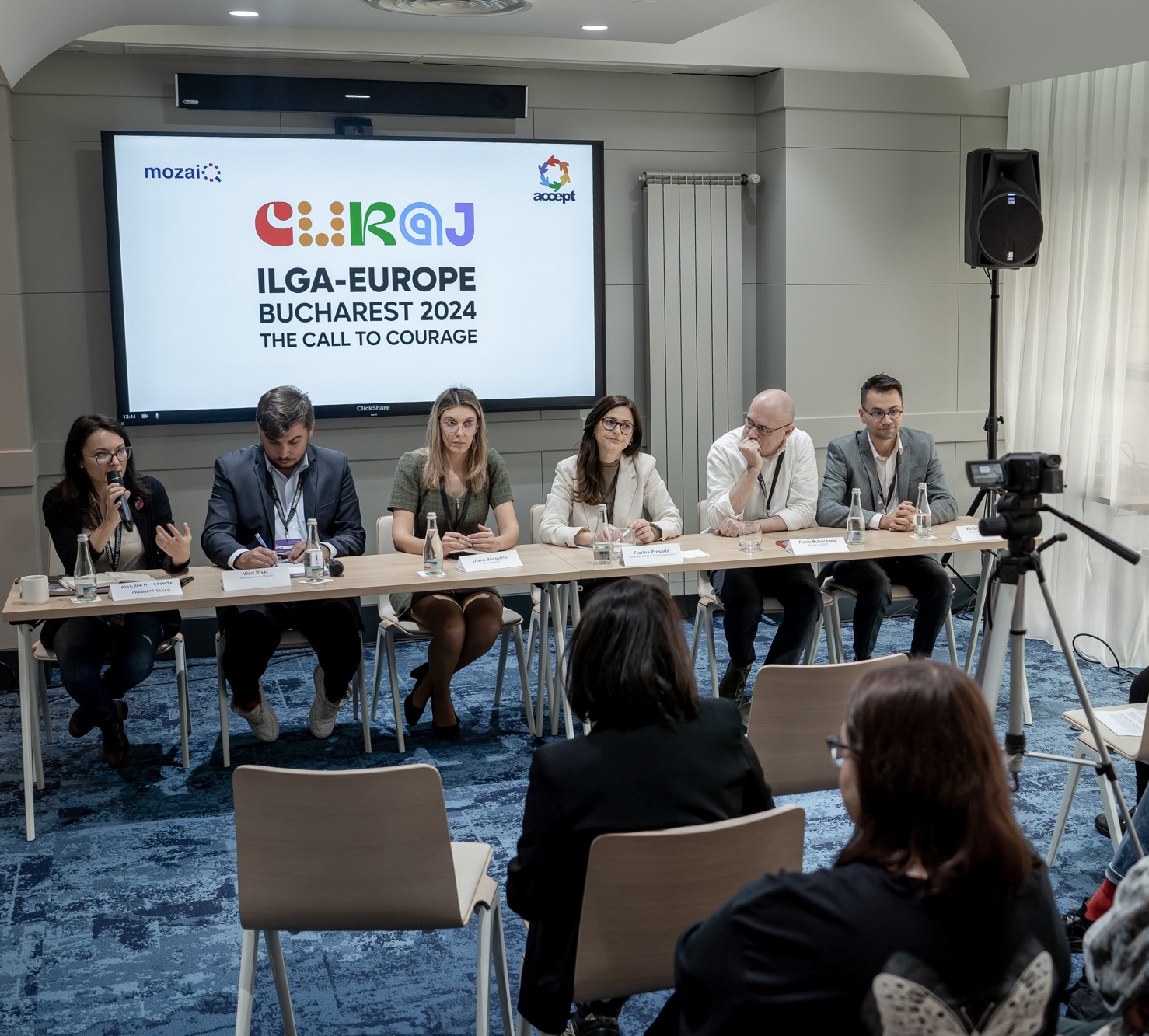
The ILGA-Europe Annual Conference, the largest LGBTI conference of its kind in Europe, has brought over 400 LGBTI activists from across Europe and Central Asia to Bucharest.
Co-organised by ILGA-Europe member organisations from Romania, Accept and MozaiQ Associations, the theme of this year’s Annual Conference is ‘The Call to Courage’, reflecting the need for constant and fearless engagement in the movement for LGBTI human rights and equality. The event aims to address issues facing the LGBTI community in Europe, so that international activists can exchange experiences and discuss topics important to the movement at a European level. It also represents a crucial opportunity to strengthen solidarity and collaboration among LGBTI organisations in the region, in the context of the rise of conservative and populist movements in several European countries.
Commenting on the choice to hold the Conference in Romania this year, ILGA-Europe’s Advocacy Director, Katrin Hugendubel said: “As Romania gears up for elections, and at a time when the rights, protections and lives of LGBTI people are more at risk now than in the last decade, we are in Bucharest for the ILGA-Europe conference over with 400 LGBTI activist participants, from 52 countries. The European Courts have made two judgements saying Romania should recognise both same-sex partnerships and gender recognition that have taken place in another EU country. It is time that Romania caught up with the majority of the European Union and implemented these judgements. Romania also needs to put in place legislation to recognise partnerships and rainbow families, so that the human rights of LGBTI people can be respected and protected, instead of being used as political scapegoats with attempted legislations to limit their human rights.”
Failures in Romania
Judgements against Romania’s at the European Court of Human Rights (ECHR) and the Court of Justice of the European Union (CJEU) are among the topics addressed during the Conference, including the need to recognise same-sex families, as well as the protection of the rights of the transgender community. These topics underline both the failures of the Romanian government in protecting fundamental rights and the urgency with which these rights violations must be remedied. These challenges are amplified by an increasingly polarised political climate, where hate speech and attempts to limit minority rights are on the rise.
In addition, the conference is being held at an essential moment for Romania, given that this year is an election year. The November-December parliamentary and presidential elections will test Romanian politicians’ commitment to democratic values and respect for fundamental rights. At a time when repressive anti-LGBTI legislation from the Russian playbook is being promoted in neighbouring countries, Romania must reaffirm its commitment to the protection of all its citizens.
According to Victor Ciobotaru, Executive Director of the Accept Association Romania: “LGBTI people have never asked for special rights. We want equal rights for ourselves and our families. Politicians have probably never done this exercise of compassion of putting themselves in the other person’s shoes, in the shoes of the person you represent, to think about what it’s like to live for 25 years with someone and not have the certainty that you can be with that person in difficult moments, such as if they have health problems, if an accident occurs, or if the other person dies. These are the pressures and fears we live with every day. Every day that goes by waiting for politicians to respect our rights, is a day when real people suffer.”
Vlad Viski, the Executive Director of MozaiQ added: “We have to put a mirror in front of the political class regarding LGBTI people in Romania. There are hateful political attitudes, which are still acceptable in the Romanian Parliament and now Romania is in the situation where it is one of the last five countries in the EU that does not recognise same-sex couples, while there are judgements on partnership rights and legal gender recognition from the EU courts that are yet to be implemented.”
According to Renate Weber, Ombudsperson for Romania: “The first thing we need, and this would be a major step forward, is a civil partnership law that applies to everyone, both same-sex couples and heterosexual couples, in a non-discriminatory manner. We need this if we want people to come to terms with change.”
Political candidates for the forthcoming Romanian parliamentary elections who attended the press conference also gave comments:
“The LGBTI community does not benefit from any kind of regulation of their rights in relation to state institutions. This is discrimination. Failure to regulate social situations invites discourses that incite discrimination, exclusion and even hatred,” said Andreea Leonte, candidate on the lists of the REPER party in the parliamentary elections.
“Politicians lack courage, but they are also ignorant,” said Diana Buzoianu, USR deputy and USR parliamentary candidate. “Not seeing the injustice in front of you is a form of huge ignorance. The biggest obstacle is their mentality, that no matter what they do, no one will hold them accountable. Those in parliament are ultra-privileged.”
“There is a need for commitment, courage and solidarity,” added Florina Presada, former Executive Director of Accept and candidate on the lists of the SENS Movement for parliament. “LGBTI people need more than civil partnership, they need more than half measures. The full right is civil marriage and everything that derives from it is needed. This means protecting the family in Romania. Let’s stop operating with half measures.
“Only through joint efforts can we build a society where every individual, regardless of their sexual orientation or gender identity, feels respected and protected. It takes courage not to let hatred and discrimination become the norm, and activists from across Europe and Central Asia gathered here are a voice of solidarity and resistance against injustice.”
ACCEPT – Strength in solidarity and a call for change
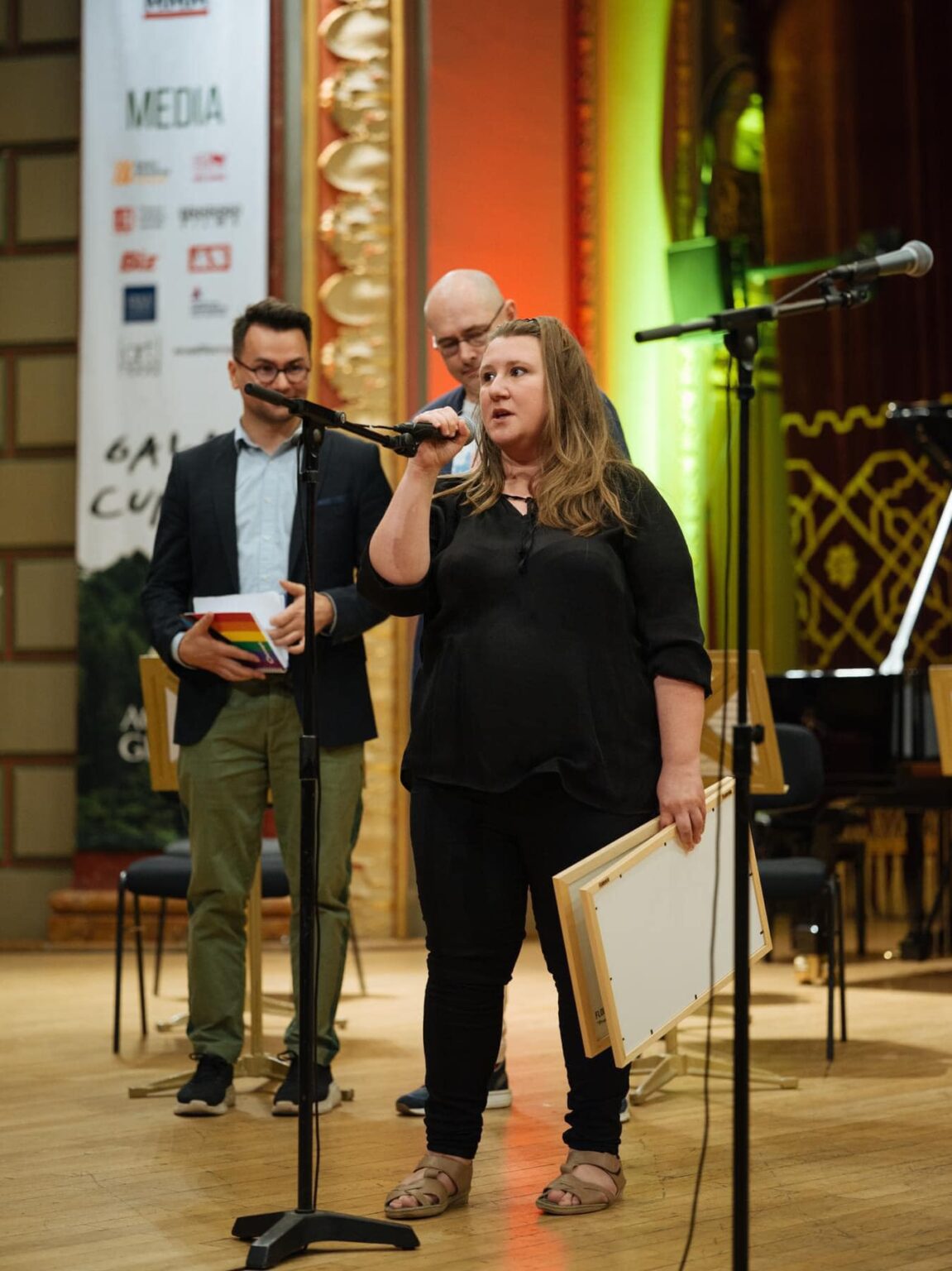
The Romanian LGBTI organisation, ACCEPT plays an important role in co-hosting the ILGA-Europe conference this year. Co-president Teo Ion-Rotaru shares her insights into what the Conference represents for the organisation and the LGBTI community in Romania, in light of the current political climate.
Hi Teo. Can you tell us what hosting the ILGA-Europe Annual Conference means for ACCEPT?
ACCEPT has been part of the European LGBTI movement for almost 30 years. Even though some faces have changed — staff, board members, and activists — our focus remains the same: growing and consolidating the movement. Hosting this conference offers a unique opportunity to contribute to the broader European movement, especially at a time when it is so needed.
It is a chance to bring together young and seasoned activists alike, offering a space where we can collectively reflect on our successes and challenges. My own first ILGA-Europe conference reinforced my belief in the power of community. Seeing others who had been through similar struggles, sharing strategies and support, was a powerful reminder that we are not alone.
What does this event mean in a wider political context for the LGBTI movement in Romania?
The political environment in Romania is tense, with Presidential and Parliamentary elections around the corner. The rights of LGBTI people are increasingly important for Europe, and Romanian politicians are aware that the eyes of Europe are on them.
We hope that this event will serve as a platform to amplify the voices of Romania’s LGBTI community, not just within our own country but across Europe. Hosting this conference sends a clear message: you cannot demand support from Europe while turning a blind eye to the rights denied to your own citizens.
Our fight is intersectional—it’s not just about LGBTI rights, but about democracy, the rule of law, and the well-being of all minorities in Romania. This conference will shine a spotlight on these struggles and push us towards greater equality.
Meet our Annual Conference hosts: MozaiQ – The courage to grow the movement in Romania
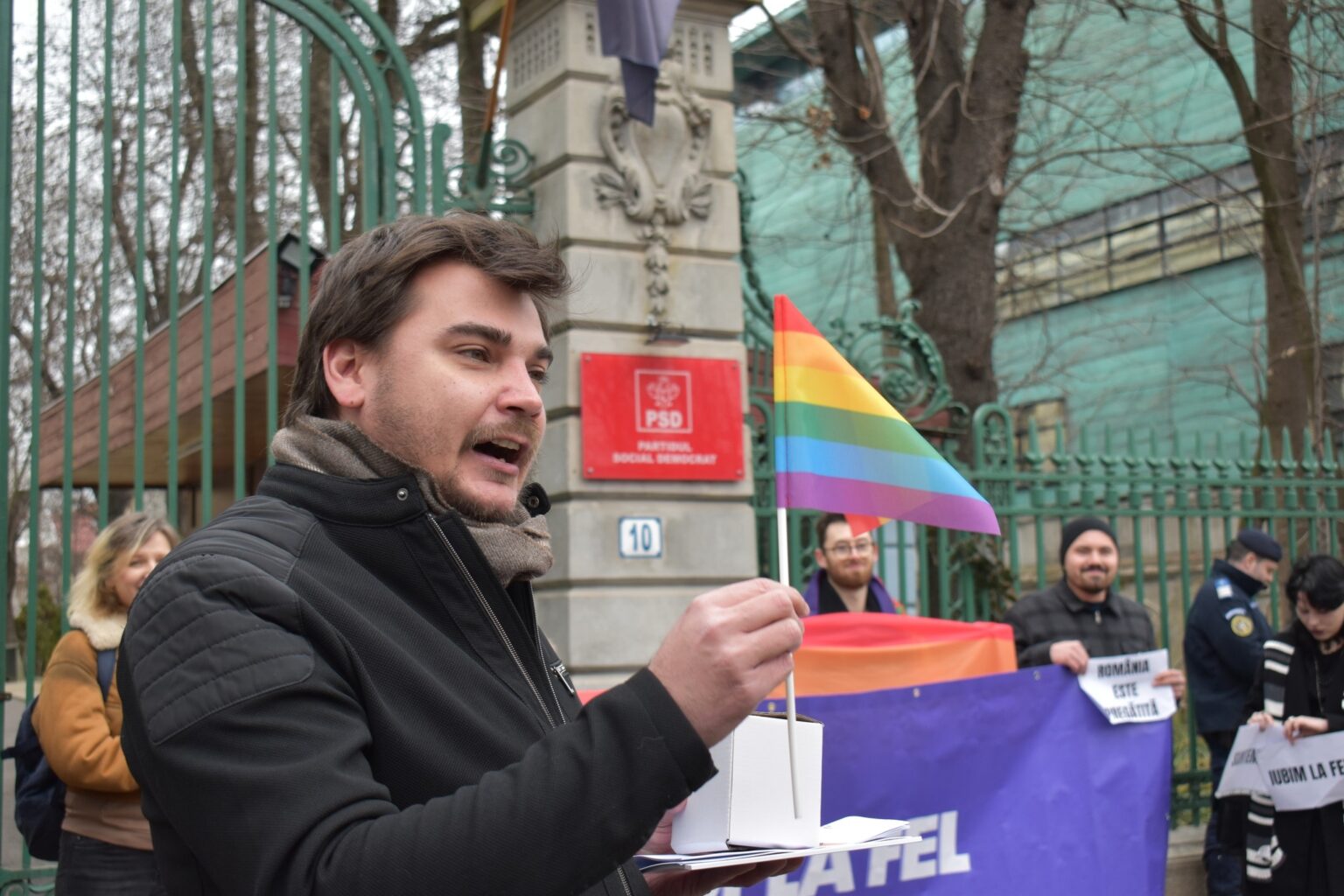
As the ILGA-Europe annual conference approaches, we turn our focus to one of the local co-hosts, MozaiQ, an organisation that has played a crucial role in shaping the LGBTI movement in Romania. Vlad Viski from MozaiQ shares what hosting the Conference means in the context of LGBTI rights in Romania.
Hi Vlad, tell us, what does hosting this conference mean for MozaiQ?
For us, hosting the ILGA-Europe Annual Conference is a testament to the growth of Romania’s LGBTI movement over the last decade. When we started in 2015, there were only one or two LGBTI organisations in the country. Today, there are more than 20 groups, not just in Bucharest but across six other cities. This transformation has been at the heart of MozaiQ‘s mission—building a movement from the ground up, creating spaces for underrepresented groups such as Roma LGBTI youth, transgender people, and the elderly.
The Conference is a reward for our efforts, and it shows that Romania is ready to connect with activists from across Europe. This Conference isn’t just about us; it’s about recognising that our work is worthy and that our movement is mature.
What does this mean in a wider political context for the LGBTI movement in Romania?
Romania’s political landscape has been anything but easy for LGBTI people. In ILGA-Europe’s Rainbow Map, Romania ranks 26th out of 27 EU countries on LGBTI rights, only ahead of Poland. Same-sex couples are not legally recognised, and gender recognition for trans people is an ongoing battle. Recent legal victories, such as defeating the 2018 referendum aimed at banning gay marriage and the 2020 bill that sought to outlaw gender identity education, and the 2024 landmark ruling from the EU Court of Justice affirming the mutual recognition of legal gender identities across Member States, show the importance of continued resistance.
We’ve managed to prevent Romania from following the path of Hungary or Poland, where democracy is being eroded. Our success in stopping these anti-LGBTI measures shows that civil society is strong, but the fight is far from over.
What is in the near future for the LGBTI movement in Romania?
With the upcoming Presidential and Parliamentary elections happening before the end of the year, the ILGA-Europe conference will play a role in keeping Romania’s LGBTI rights on the political agenda. Romania is being watched, and our movement is gaining power not just here, but across Europe. Romania has to stay on its European path. It has to provide a strong policy on legal gender recognition based on self-determination and create an environment in which LGBTI people are protected. It is essential that Romania continues to recognise the rights of LGBTI people as part of its commitment to the European path.
Joint statement: Kazakhstan risks further affiliating with Russia after MP requested to ban a leading LGBTI human rights group as “extremist”.
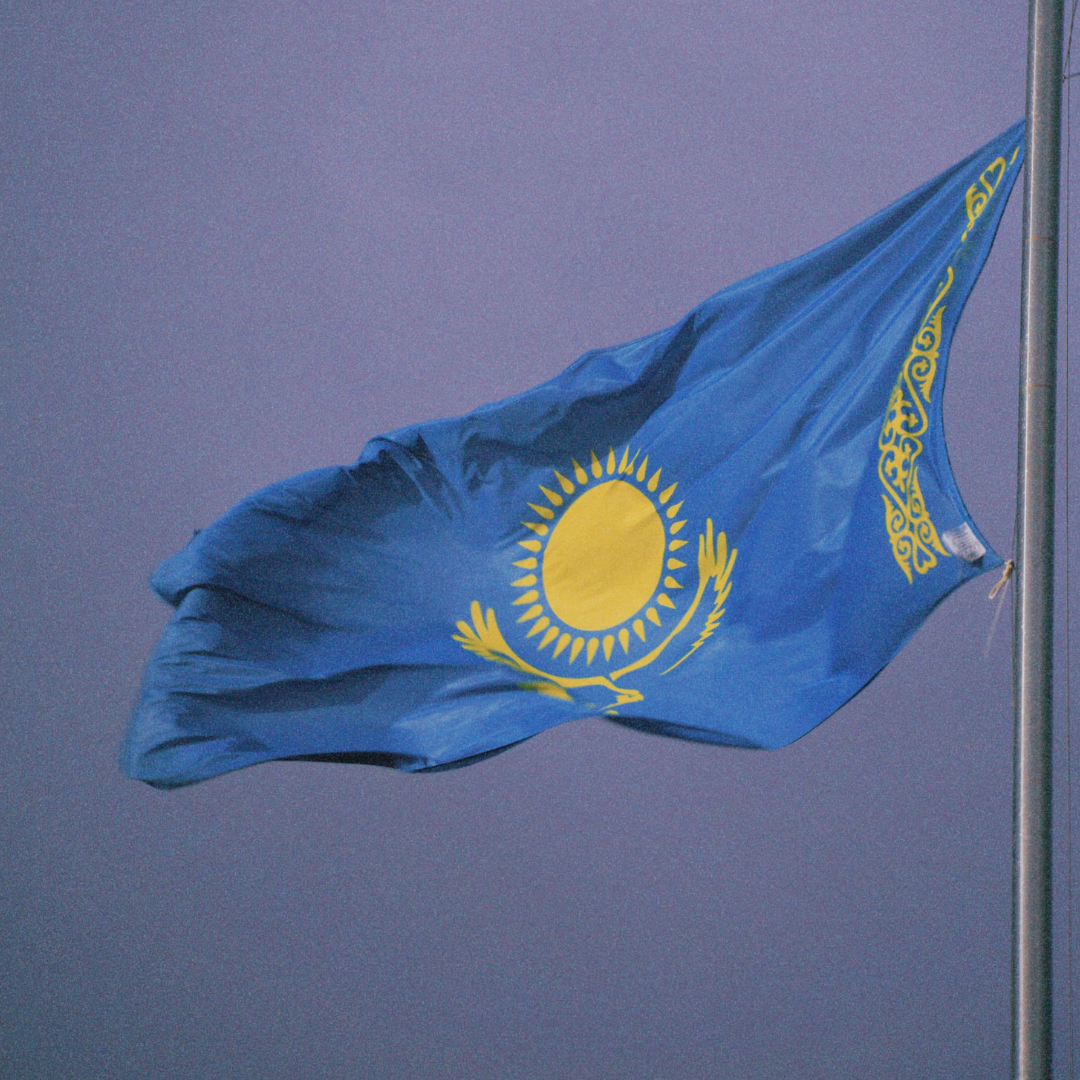
The recent initiative of a Member of Parliament of Kazakhstan to designate as “extremist” and ban an LGBTI civil society organisation, violates Kazakhstan’s human rights obligations and further affiliates it with Russia.
On 9 October 2024, Mr Rinat Zaitov, a member of the Parliament of Kazakhstan, speaking on behalf of the ruling party Amanat, formally requested the government to declare a leading LGBTI civil society organisation as extremist, which would lead to prohibition on its operation and the penalisation of its staff. This happened after a group of pro-Russian radical activists led by Bagila Baltabayeva, the leader of the Kazakhstan Union of Parents, stormed a private event organised by the feminist group Feminita for the LGBTI community in Almaty, Kazakhstan.
Baltabaeva and her group attempted to enter the venue where Feminita was holding the event and disrupt it. Earlier this year, the same group pushed for the petition to ban so-called “LGBT propaganda”, the public support of which was, according to independent sources, allegedly orchestrated by Kazakh officials. At the same time, Kazakhstan has been gradually introducing scrutiny on civil society organisations which are reminiscent of so-called “foreign agents” laws.
Political influence from Russia
State-facilitated violence against civil society activists and scapegoating of LGBTI people is part of the broader set of tools that also includes so-called ‘LGBT propaganda” laws and “foreign agents” laws. Such legislative attacks against human rights defenders protecting LGBTI individuals have a negative impact on the European Union, destabilising it by supporting claims from radical political forces within the EU.
The Government of Kazakhstan must not follow the path, which Russia and its allies have chosen in recent years. We call the Government of Kazakhstan not to declare Feminita or any civil society organisation supporting LGBTI people as extremist, and to duly protect civil society organisations from attacks from third parties, as well as to focus on actual public concerns.
We call on the European Parliament to unequivocally condemn this attempt to ban legitimate human rights activism, as well as any similar initiatives to use anti-extremist legislation against human rights defenders and civil society organisations.
We call on the European Commission to ensure that it is consistent with its own principles and values when cooperating with Kazakhstan’s government and that international commitments on human rights violations are respected across the board. In the event that Feminita or any other civil society organisation supporting LGBTI people is declared ‘extremist’ in Kazakhstan, we believe the European Commission will exercise continuity and that the new sanctions framework against Russia’s destabilising actions abroad will be fairly applied in a similar manner. We specifically call the European External Action Service and the EU Delegation to inform the Government of Kazakhstan about the potential consequences of such actions.
ILGA-Europe
Outright International
LSVD⁺ – Verband Queere Vielfalt
Hirschfeld Eddy Foundation
FRI – The Norwegian Organisation for Sexual and Gender Diversity
The Council for Global Equality
LGBT+ Denmark
Safety and rights for lesbians in Europe

On International Lesbian Day, we highlight the recent report by the Committee on Equality and Non-Discrimination, emphasising the need for targeted policies to protect lesbians from violence and discrimination across Europe
Lesbian, bisexual, and queer (LBQ) women face profound challenges rooted in discrimination, violence, and systemic inequality. The recent resolution and report adopted by the Parliamentary Assembly of the Council of Europe on 03 October highlights the urgent need for comprehensive policies that address these issues. Intersectional discrimination, where sexual orientation and gender intersect for LBQ women and the marginalisation that stems from that intersection, complicates the landscape of human rights that LBQ women should have access to, requiring specific actions to ensure their protection.
The report outlines that LBQ women, including trans and intersex LBQ women, experience multiple forms of violence and harassment, which can manifest in both public and private spheres. Violence ranges from physical assaults and psychological abuse to online harassment, often targeting women who do not conform to traditional gender roles. For instance, a survey by the EU Fundamental Rights Agency highlighted that 33% of lesbian women in Europe have avoided public spaces out of fear of violence or harassment, demonstrating the pervasive atmosphere of insecurity they face.
This violence is intensified for racialised LBQ women, who navigate an additional layer of discrimination. The report notes that racial stereotypes can subject them to heightened prejudice, affecting their access to healthcare, housing, and employment. Many racialised LBQ women report feeling pressure to conform to heterosexual norms, further marginalising their identities and experiences.
The effect of anti-gender movements
The increasing influence of anti-gender movements across Europe worsens these issues, aiming to silence and delegitimise the rights of LGBTI people, particularly LBQ women. The report emphasises the need for legislative frameworks that protect human rights, asserting that all women should have equal access to the protection and support guaranteed by international conventions, such as the Istanbul Convention. The resolution calls for Member States to enact anti-discrimination laws that address not only sexual orientation but also gender identity and expression and sex characteristics, creating an inclusive environment for all.
Education challenges prejudice
Furthermore, the resolution highlights the importance of inclusive education programmes as a means of challenging prejudice. Educational institutions must serve as spaces for progress, promoting understanding of diverse identities while dismantling harmful stereotypes. By co-creating a culture of respect and inclusivity, we can work towards reducing the stigma and violence faced by LBQ women.
Comprehensive policies
To move beyond mere visibility and call for actionable change, the resolution notes that governments must adopt comprehensive policies that protect the rights of LBQ women, ensuring that their voices are heard in legislative processes. This includes but is not limited to recognising the parental rights of same-sex couples, ensuring equitable access to healthcare, and supporting emergency shelters that cater specifically to the needs of LBQ women.
By adopting the recommendations presented in the resolution, we can create a safer and more inclusive Europe where every lesbian can live authentically and with less fear of violence or discrimination. It is crucial to transform visibility into meaningful action, ensuring that no one is overlooked in the continuous fight for equality.
Joint statement: EU Court of Justice strengthens trans rights by calling for the automatic recognition in birth certificates
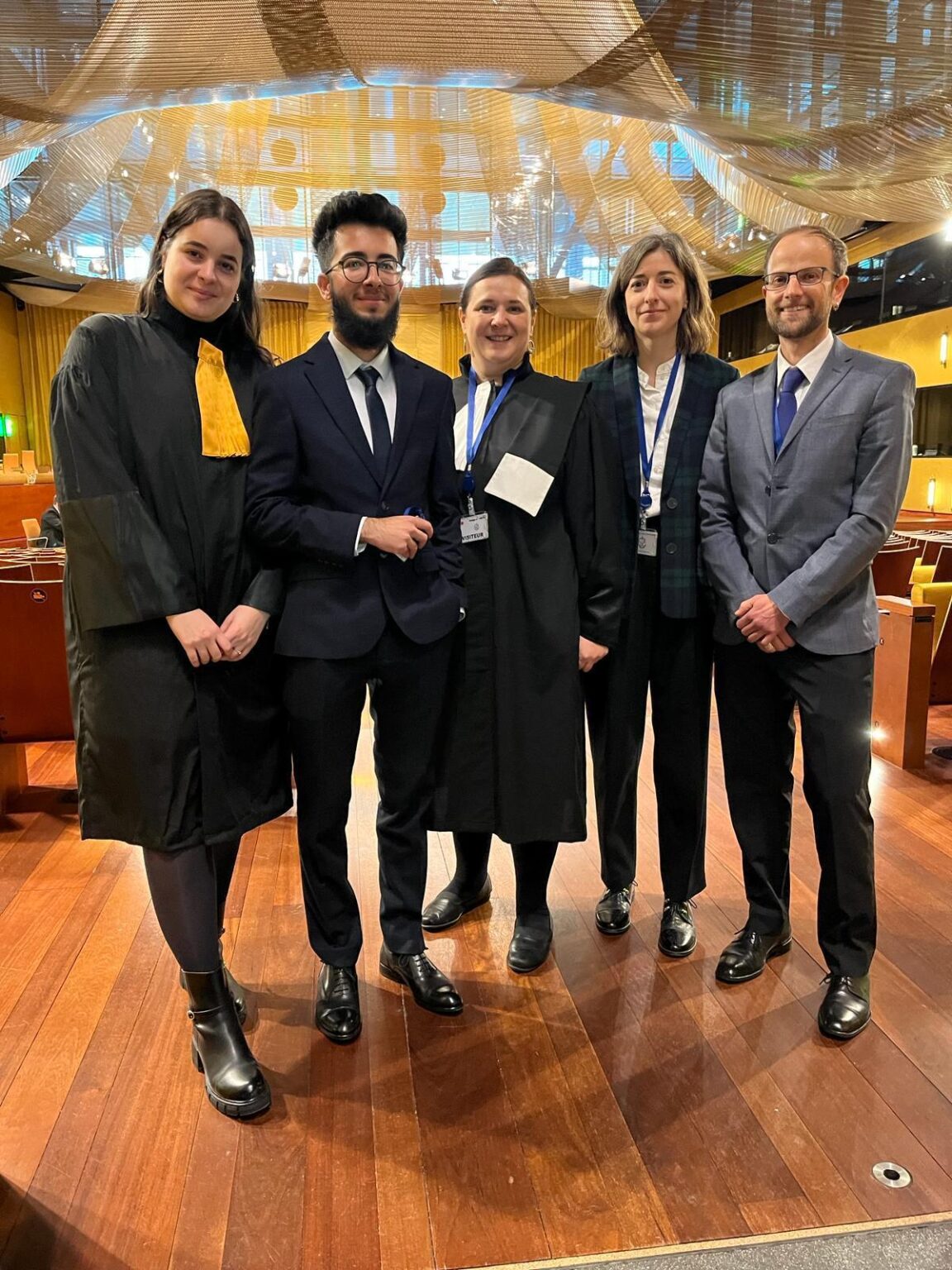
ACCEPT, TGEU and ILGA-Europe welcome today’s decision of the Court of Justice of the EU (CJEU) said that the refusal of an EU Member State to recognise changes of forename and gender acquired in another Member State is contrary to the rights of EU citizens.
The case C-4/23 Mirin concerns Arian Mirzarafie-Ahi, a Romanian trans man, with dual Romanian-British citizenship. Arian began the legal process to change his legal gender and name in 2017 and was granted a gender recognition certificate by UK authorities in 2020. At that time, the UK was in the Brexit transition period and still treated as a Member State of the EU. Subsequently, Romania refused to register the name and legal gender recognition of the applicant obtained in the UK and demanded that he go through Romania’s judicial legal gender recognition procedure. However, the European Court of Human Rights had already found that Romania does not have a procedure for change of name and gender marker that satisfies the standards of the European Convention of Human Rights (ECHR) of being quick, transparent and accessible.
The Romanian court asked the EU’s top court to clarify whether EU law required Romania to recognise another Member State’s decision acknowledging the name and gender marker of the applicant or if it could enforce its own procedures for legal gender recognition. In other areas of law, EU Member States commonly recognise each other’s decisions without further procedures. As such, this case marks a pivotal moment in addressing the mutual recognition of legal gender recognition decisions across EU Member States.
The CJEU Decision
The CJEU ruled in favour of Arian, stating that Romania must recognise the legal gender recognition granted in the UK. The Court emphasised that the refusal to acknowledge changes of forename and gender acquired in another Member State is contrary to the fundamental rights of EU citizens, particularly the principles of free movement and non-discrimination. The Court highlighted that mutual recognition of legal decisions among Member States is essential for upholding the rights of individuals within the EU, and that personal identity, including gender, is a fundamental element of one’s identity, protected under Article 7 of the Charter of Fundamental Rights and Article 8 of the European Convention on Human Rights. This landmark ruling reinforces the obligation of Member States to respect and recognise the legal gender identity of individuals as granted by other EU countries.
Impact
The importance of this judgement extends beyond the applicant’s individual circumstance, and underscores the broader issue faced by trans people whose legal gender recognition in one Member State is not acknowledged elsewhere in the EU, preventing them to travel freely, live, work or study across the EU, or even to vote, as any other citizen is able to. The judgement confirms the principle that rights legally obtained in one Member State must remain valid throughout the EU.
Reactions
According to Arian’s legal counsel, human rights lawyer Iustina Ionescu: “Today’s verdict has shown us that trans people are equal citizens of the European Union. When you have rebuilt a life in another part of the European Union because you are not welcome in your own country, it is normal to ask to be treated with dignity when interacting with the authorities in your home country. The fact that today the Court ruled on the mutual recognition of LGR decisions, no matter how different the procedures are in the Member States, should determine Romanian authorities to also adopt a fast, transparent and accessible national procedure, as requested by existing ECHR jurisprudence.”
TGEU Expert Advisor, Richard Köhler, said: “The CJEU’s ruling in the Mirin case is a monumental victory for trans people in Europe! Arian was forced to navigate a legal nightmare, facing the prospect of conflicting passports and demands for sterilisation to match his legal gender on Romanian and UK documents. Member States must recognise each other’s decisions—this is about equality and dignity. Romania, it’s time to act: Arian deserves his passport now, and the country needs a legal framework for recognising foreign gender identities.”
ILGA-Europe’s Senior Strategic Litigation, Marie-Hélène Ludwig added: “Today’s ruling confirms that without mutual recognition of legal gender recognition from one Member State to another, the right to freedom of movement and residence is not guaranteed for trans people in the EU. It is a great victory that shows the power of strategic litigation in the EU. This judgement will have an immensely positive impact, increasing legal protection for all trans people in the EU, all the more as certain EU countries like Romania still do not provide a legal framework for legal gender recognition conforming with European Court of Human Rights’ standards.”
Romanian NGO ACCEPT is a plaintiff in the case alongside Arian. TGEU and ILGA-Europe supported ACCEPT throughout the case, and joined Arian’s legal team at the Oral Hearing before the CJEU in January 2024.
Rainbow Digest September 2024

Draconian anti-LGBTI legislative package in Georgia will have far-reaching negative impacts
On 17 September, the Georgian Parliament passed a legislative package, which aims to ban information about LGBTI people in various public spheres and directly curtails the rights and freedoms of LGBTI people in Georgia, impacting the population of Georgia as well as foreign residents.
With Parliamentary elections in Georgia scheduled for 26 October, in which the Georgian Dream party is seeking another term in office, the fast-tracked adoption of this law and heightened political hate speech targeting LGBTI people is a clear example of instrumentalising LGBTI lives for electoral gain.
The law will in practice make it impossible for Georgian LGBTI people to have their partnerships recognised, to adopt, or for their children to be protected by law. Trans people, and some intersex people, will have their rights and quality of life greatly reduced due to the ban on legal gender recognition and on any kind of trans-specific medical interventions.
We stand in solidarity with Georgian civil society, which has faced increasing threats and violence under a government that is drawing from the Russian playbook of authoritarianism. We call on the President of Georgia not to sign the legislative package into law, and on all our international allies to support this call.
Bulgarian Parliament rejects the second anti-LGBTI law
On 26 September, the Bulgarian Parliament did not pass the second anti-LGBTI law which would ban advertisement of trans-specific healthcare for minors. The rejection follows Bulgarian LGBTI activists’ intensive advocacy and campaigning efforts since the anti-LGBTI propaganda law that passed on 7 August, in a fast-tracked process leading up to elections this month.
ILGA-Europe news
Annual Conference is taking place in Bucharest from 16-19 October
We look forward to being with over 400 activists at our conference, hosted by local organisations Accept and Mozaiq. It promises to be a pivotal moment for the LGBTI movement in Europe and Central Asia, as we come together in a vibrant, engaged and courageous space to connect, learn from each other, have great fun, and re-energise for the work ahead.
Join our meeting on ending conversion practices
We’re inviting LGBTI activists from Europe to apply for our one-day meeting on 6 December to talk about strategies, challenges, and lessons learned regarding banning conversion practices.
Read more and apply before 6 October.
New report presents a complex picture of progress in Europe
ILGA-Europe, in collaboration with IGLYO, have released a report reviewing how Council of Europe countries are protecting the rights of LGBTI people. While some countries have advanced, many have stagnated or fallen back.
Creative ways allies supported us in Pride 2024
As Pride season 2024 comes to a close, we highlight some of the most innovative and impactful initiatives by our allies that have stepped up to support the LGBTI community. Find out more.
Latest news
EDUCATION
‘Trans children and young people in schools deserve safety and understanding’
IGLYO issued a statement on the UK Statutory Guidance for Schools & Colleges and their failure to include trans and non-binary students in an affirming, supportive way.
EQUALITY AND NON-DISCRIMINATION
New designated-Commissioners announced for the European Commission
The President of the European Commission announced the EU’s renewed commitment to an LGBTIQ Equality Strategy for post-2025. Belgian Hadja Lahbib was announced as the Commissioner-designate for Preparedness and Crisis Management and Equality, while Ireland’s Michael McGrath is the Commissioner-designate for Justice and Rule of Law.
FAMILY
European Court delivers judgement on Poland’s failure to protect same-sex couples married abroad
The European Court of Human Rights has found that Poland breached the right to respect for the family life of two same-sex Polish couples married abroad by failing to recognise their relationships.
Read more.
Denmark extends legal protection for rainbow families
As of 15 September, the amendments to the Children’s Act in Denmark came into effect, fully recognising children born in rainbow families with home-insemination and trans parenthood.
LEGAL GENDER RECOGNITION
EU Court of Justice Advocate General calls on Hungary to correct trans refugee’s gender marker
The opinion specifically relates to the case of a trans refugee in Hungary who has been denied legal gender recognition in the asylum register since 2021. The case raises crucial questions for the CJEU: whether the GDPR mandates the rectification of the gender marker on national registries upon request, and if so, does this request require evidence?
Movement highlight
25 years of bi+ visibility and the rise of the Bi+ Equal umbrella
Meet Bi+ Equal, an emerging bi+ umbrella organisation working to reshape how bi+ people and bi+ equality are understood and supported across Europe. Bi+ Equal is an initiative created by and for bi+ people, aiming to fill the gaps in representation and advocacy that have often left bi+ voices unheard in broader LGBTI spaces.
Read our interview with the founders of B+ Equal.
Notice board
- National Democratic Institute (NDI)’s Equal Rights in Action Fund is open for applications. If your organisation is interested, you should reach out to embassies of countries that participate in the Global Equality Fund (including US embassies) to express your interest in a nomination. Read more and apply by 4 October.
- Fondazione Giacomo Brodolini with Oxfam Italia and Oxfam Italia Intercultura are launching a funding opportunity for LGBTQIA+ organisations working on national and international legislation on gender-based violence and related procedures in the European Union. Read more and join the info session on 11 November.
- GILEAD is looking for research proposals to end the HIV epidemic for Europe. Read more and apply by 15 October.
- IGLYO is looking for a Projects & Events Officer to join their team in Brussels. Read more and apply by 13 October.
- Aleanca LGBTI+, one of the LGBTI NGOs in Albania, is currently looking for an expert on strategic communication to counter disinformation campaigns by the anti-gender movement. Read more and apply by 5 October.
Call for participants: Meeting on national-level actions to end conversion practices

On 6 December 2024, ILGA-Europe will host a one-day in-person meeting in Brussels, Belgium, for up to 20 activists to talk about strategies and lessons learned regarding banning conversion practices.
An increasing number of countries in Europe and Central Asia have adopted or are in the process of developing bans on conversion practices. As of September 2024, ten countries have such bans in place: Belgium, Cyprus, France, Germany, Greece, Iceland, Malta, Norway, Portugal, and Spain. Efforts to develop bans are also ongoing in several other countries in the region. According to ILGA-Europe’s member organisations, there are several issues that cause regular problems in the development and debate of these bills, including sanctions and whether or how to cover conversion practices when the person subjected is an adult.
The purpose of this meeting is to gather information about the various existing and planned national-level bans, to collect good practices and responses to common issues, and to map areas where additional information is needed for advocacy in pursuit of ending these practices at the national level. The meeting is open to national level activists working on ending conversion practices, from both countries that have and have not yet adopted bans.
Logistical details
- All travel costs of selected participants, including transportation, accommodation for two nights, and subsistence, will be covered by ILGA-Europe
- The meeting is open to activists from anywhere in Europe
- Attendees will be expected to actively engage in the meeting and present about their national situation to the group (more details to be provided to selected participants)
- The meeting will take place in English
- Specific questions on transportation needs, accessibility needs, dietary requirements, etc. will be collected after selection of participants
Applications
If you’re interested in attending the meeting, fill out this application form.
Applications are due by 23:59 CEST on Monday, 6 October 2024.If you have any questions, please contact Cianán Russell, ILGA-Europe Senior Policy Officer: cianan@ilga-europe.org